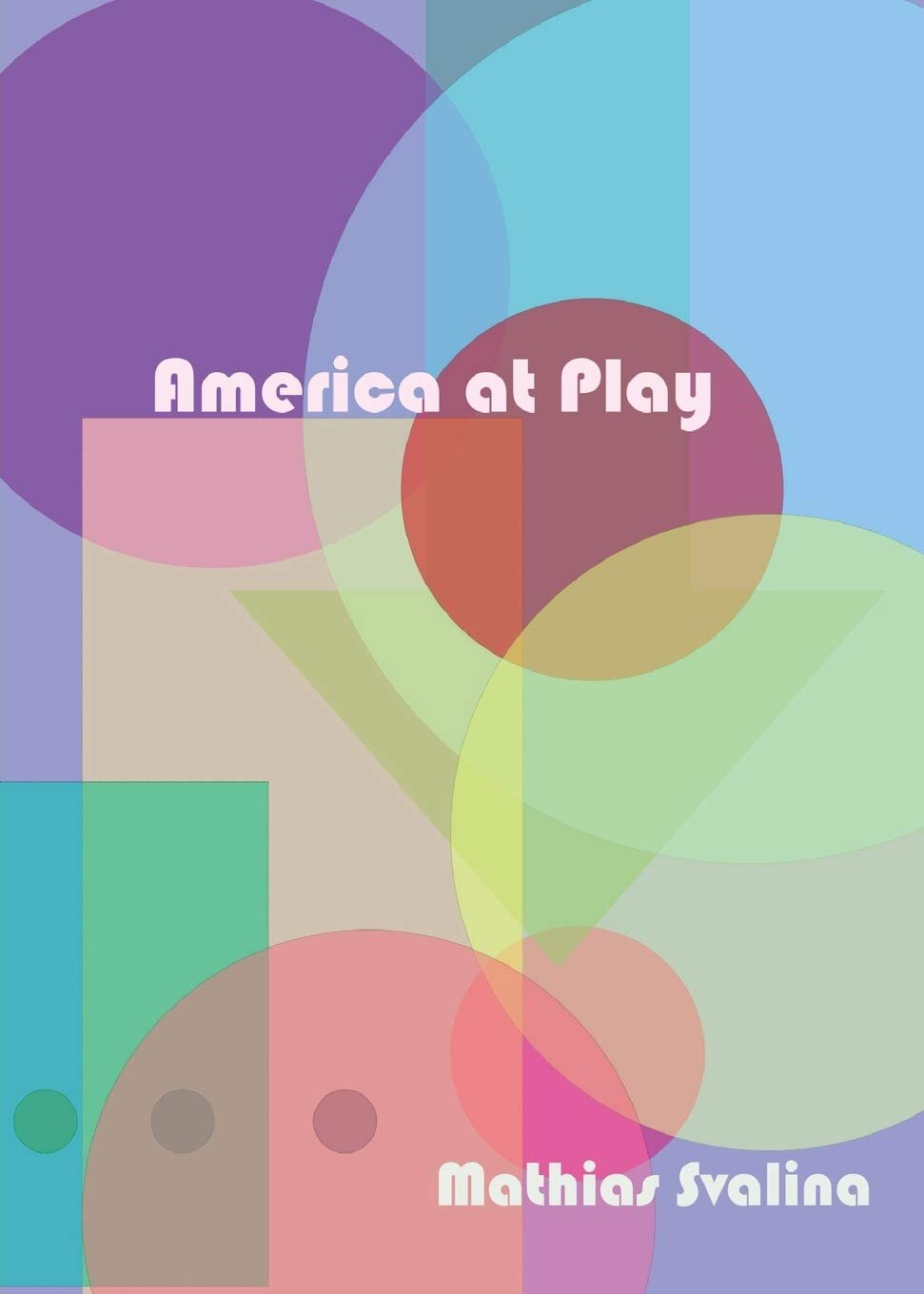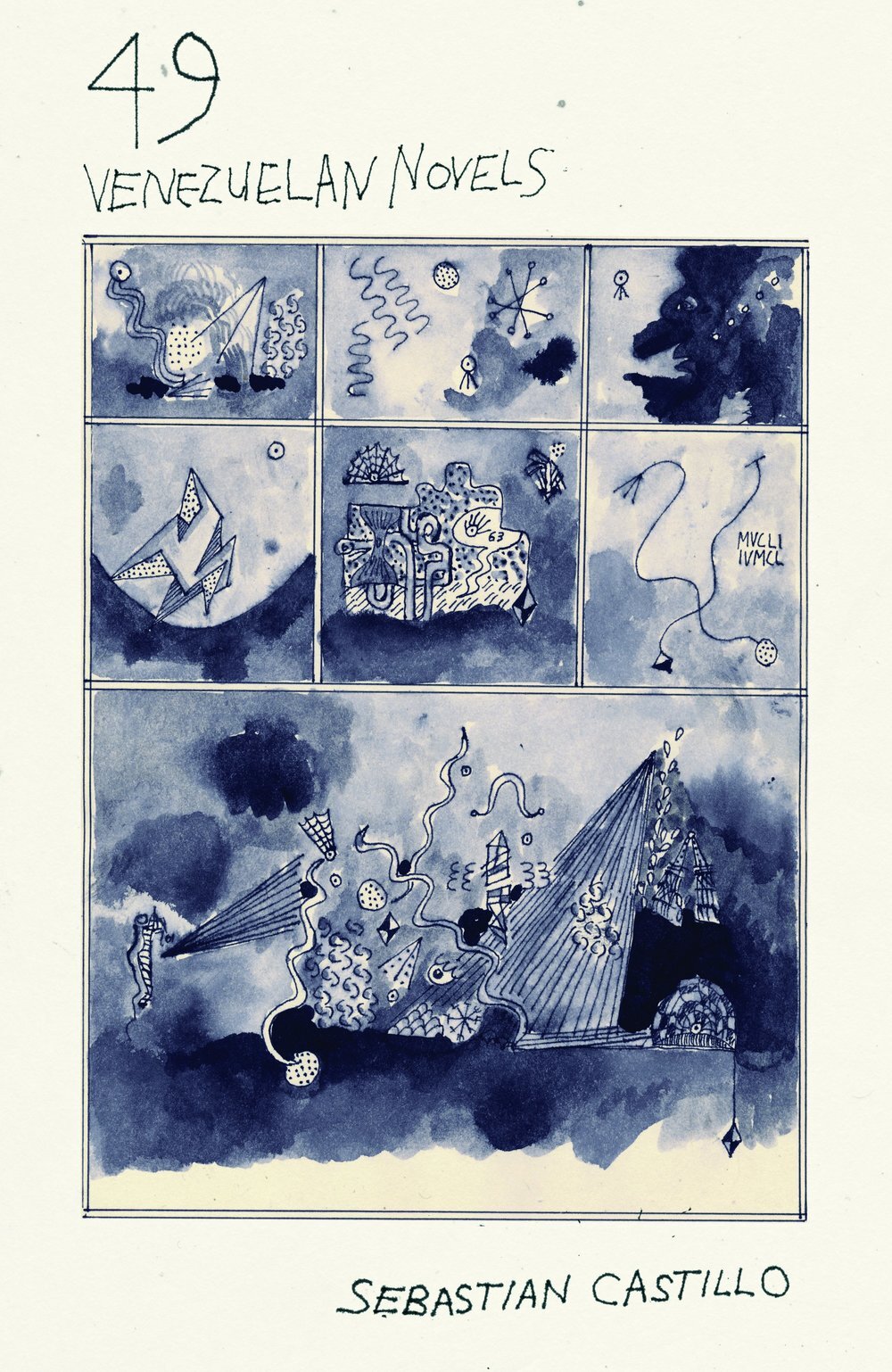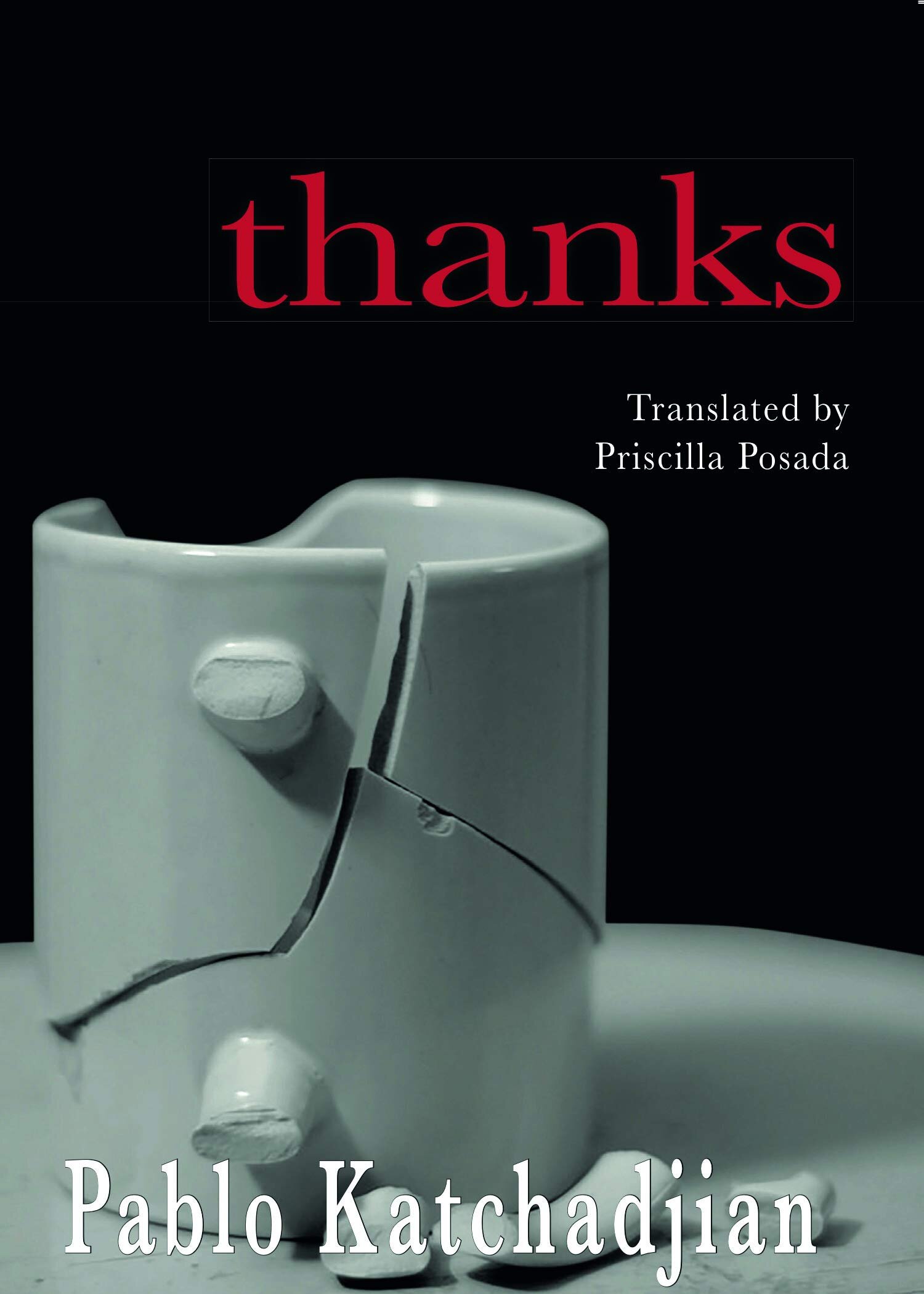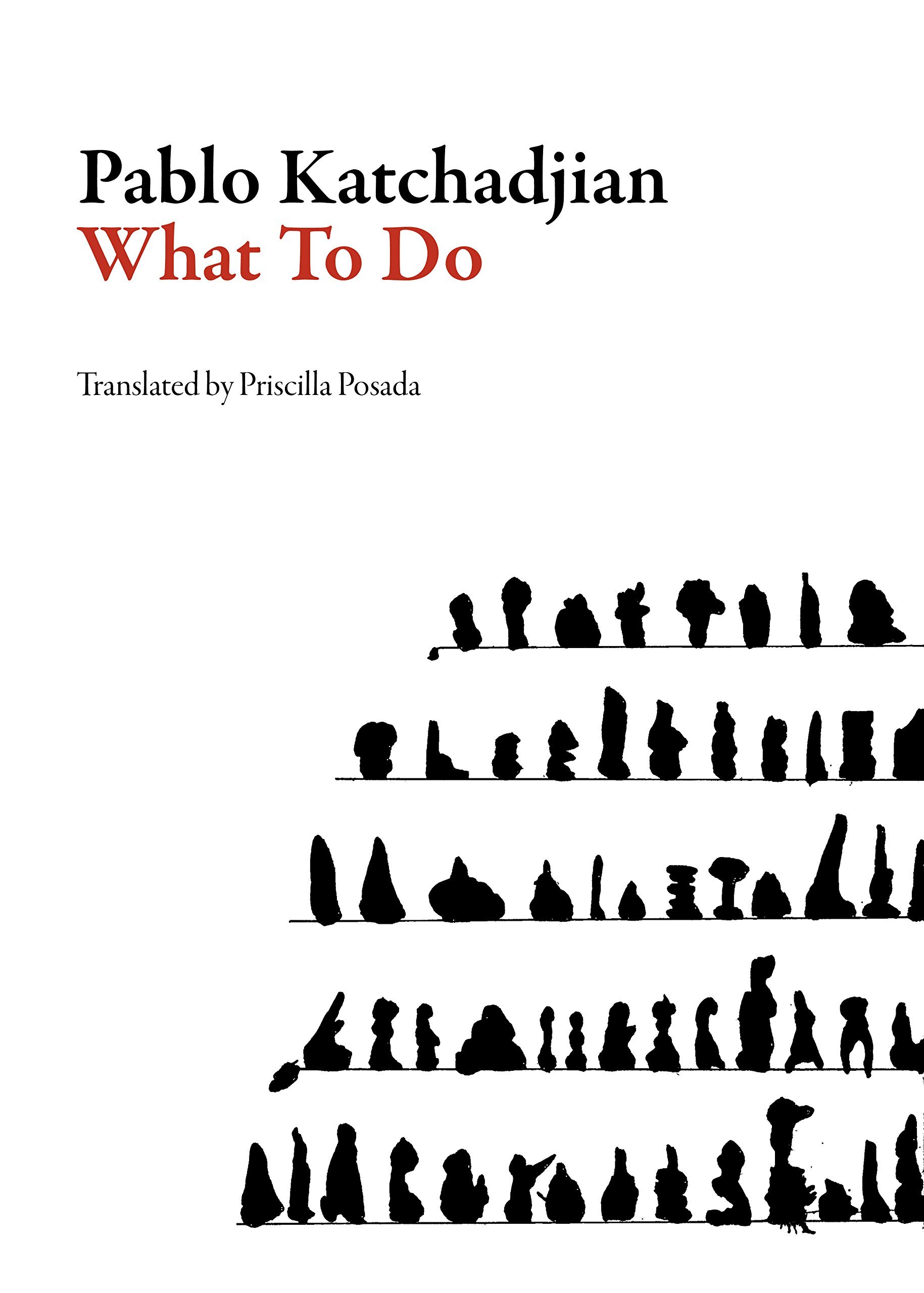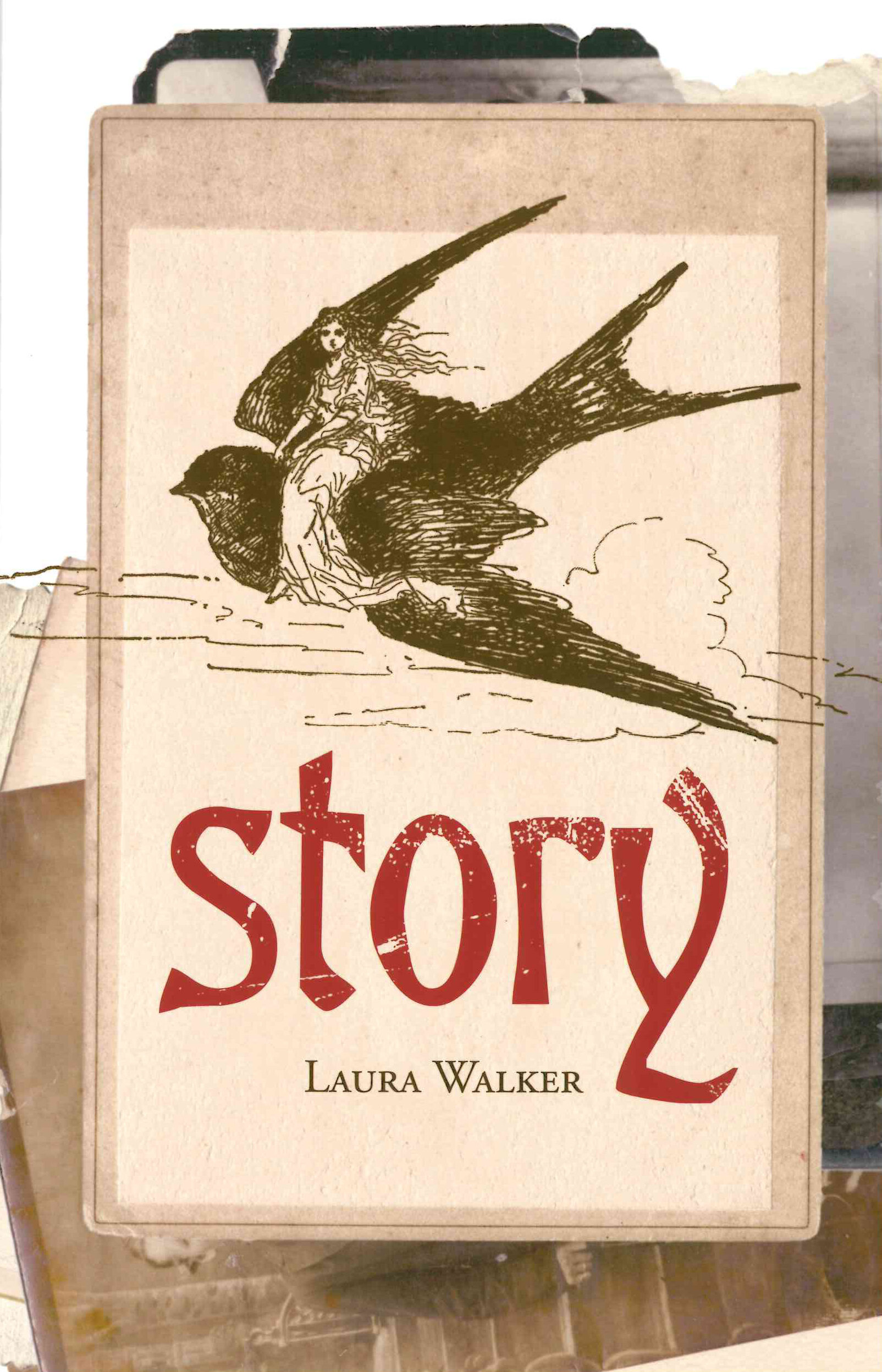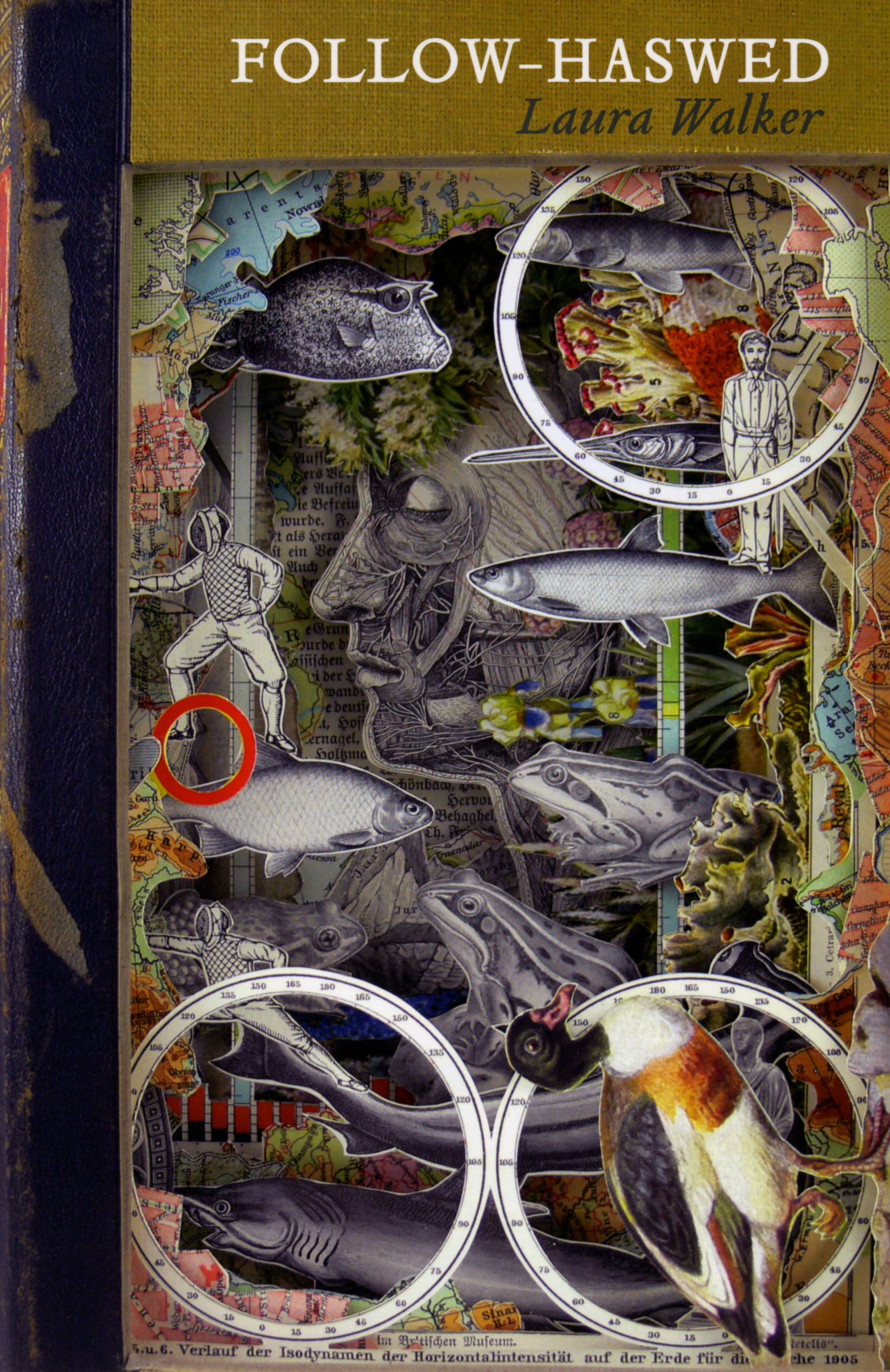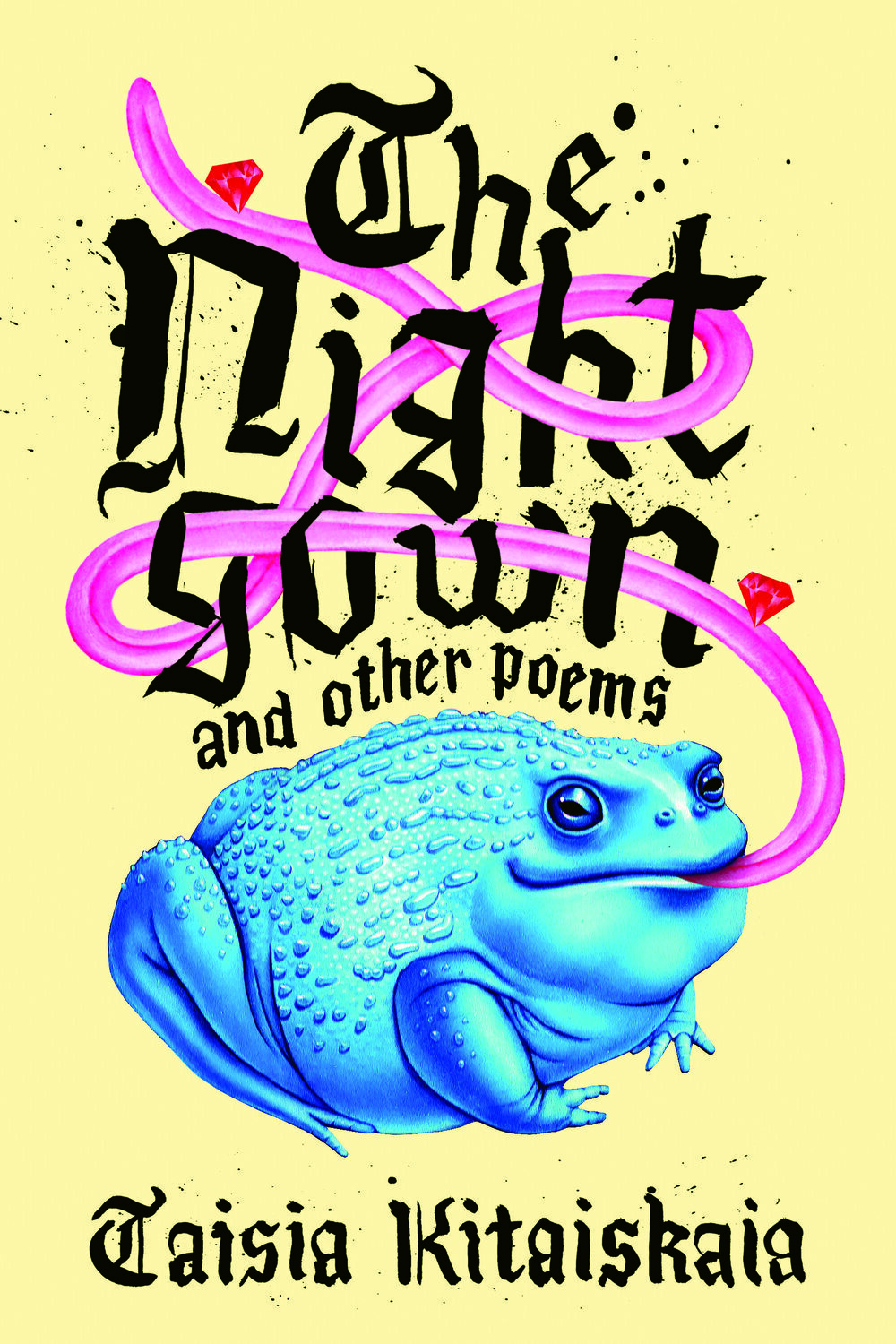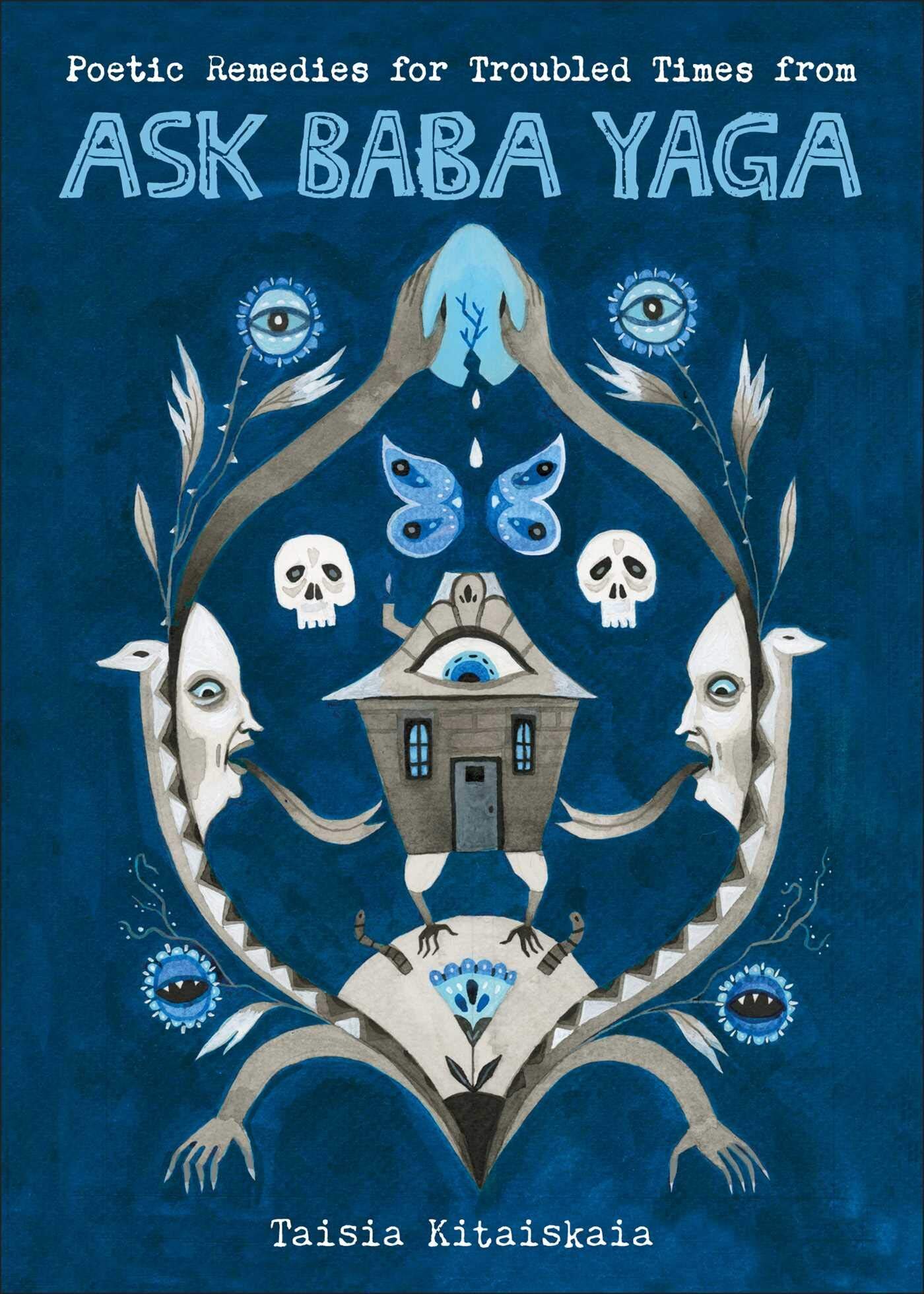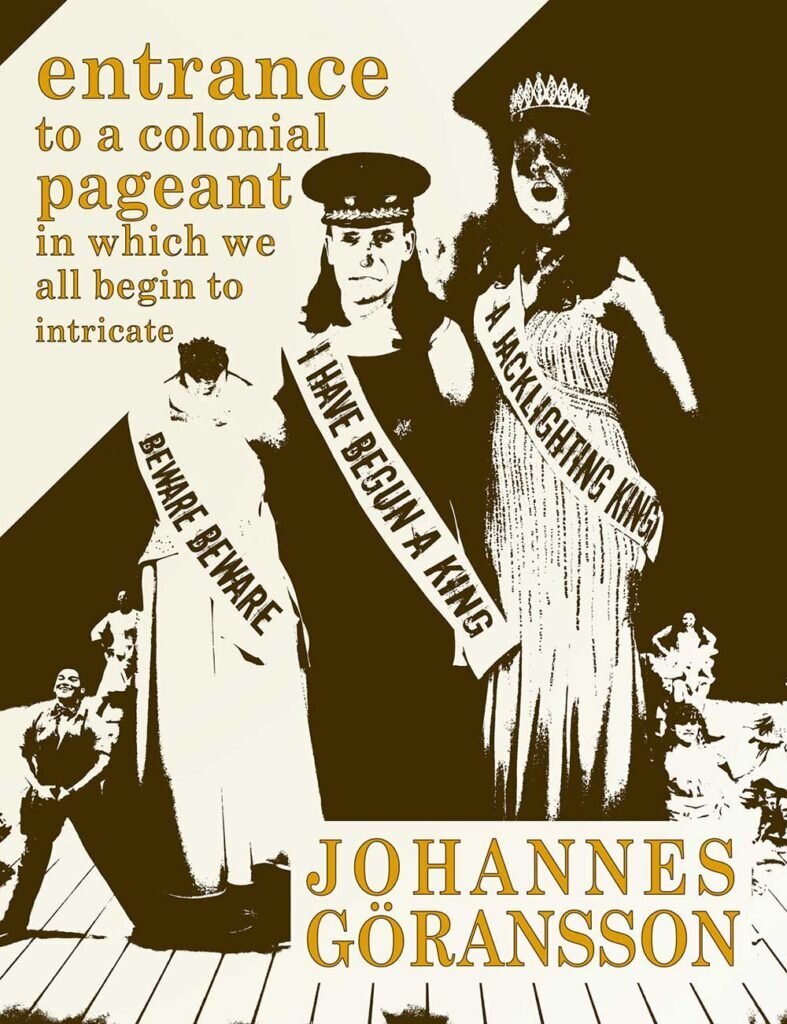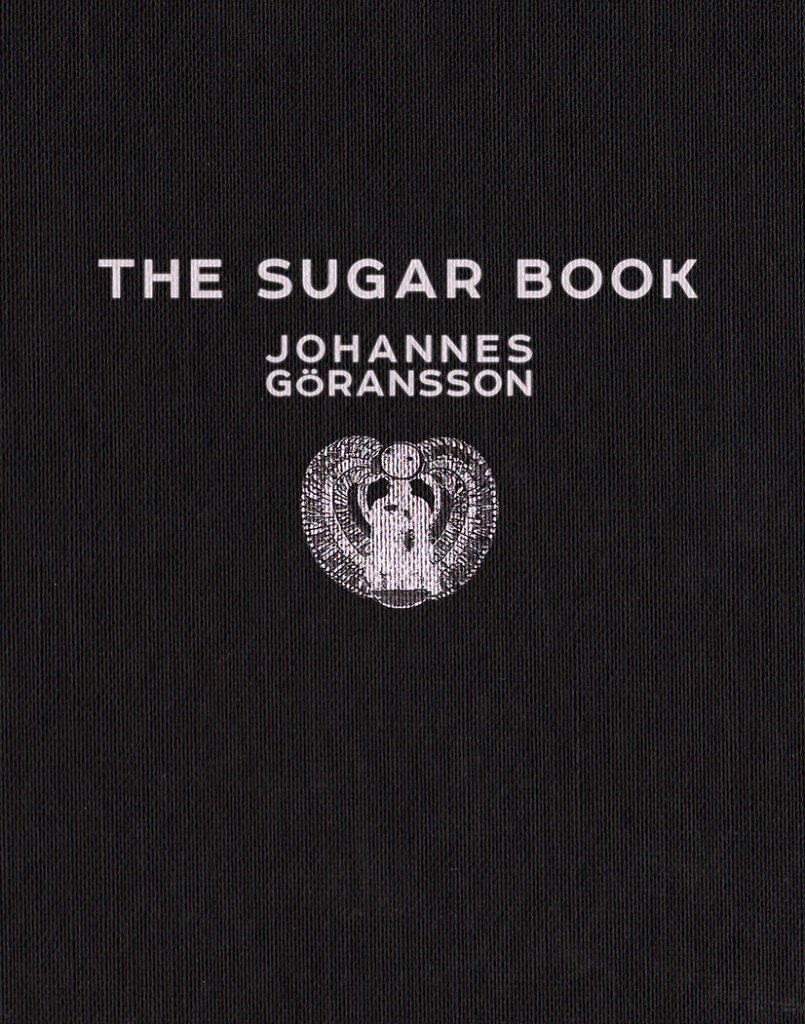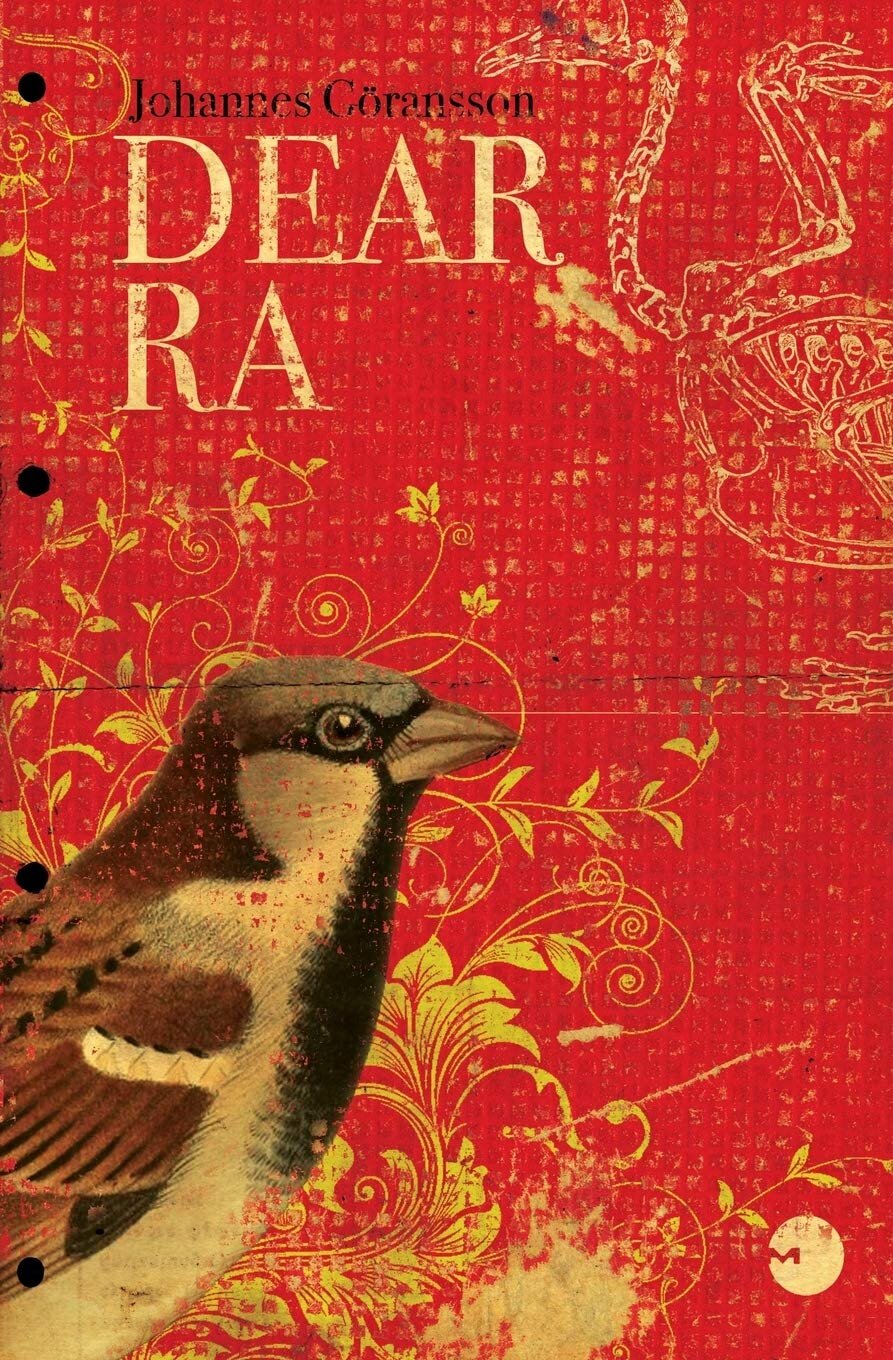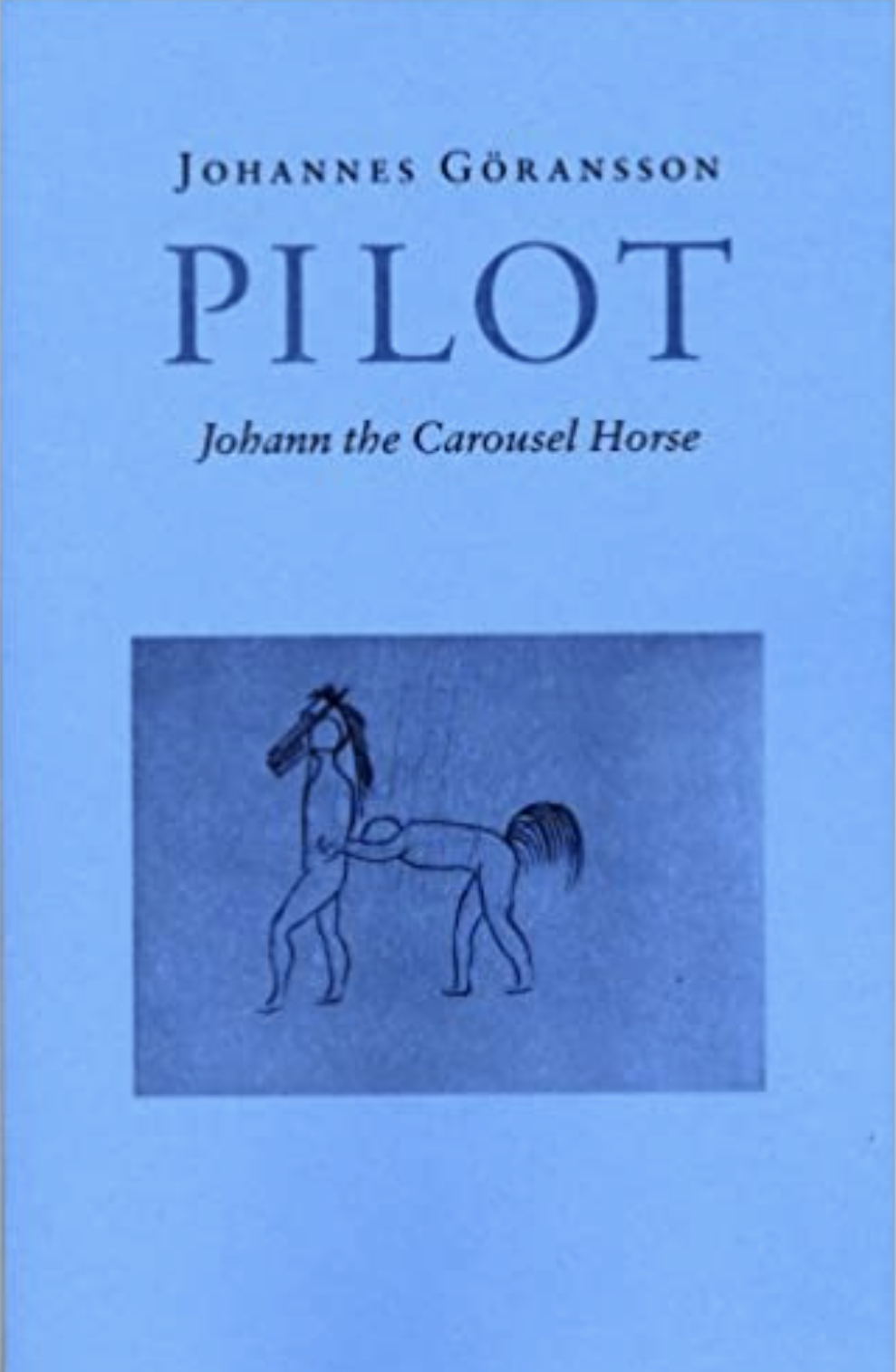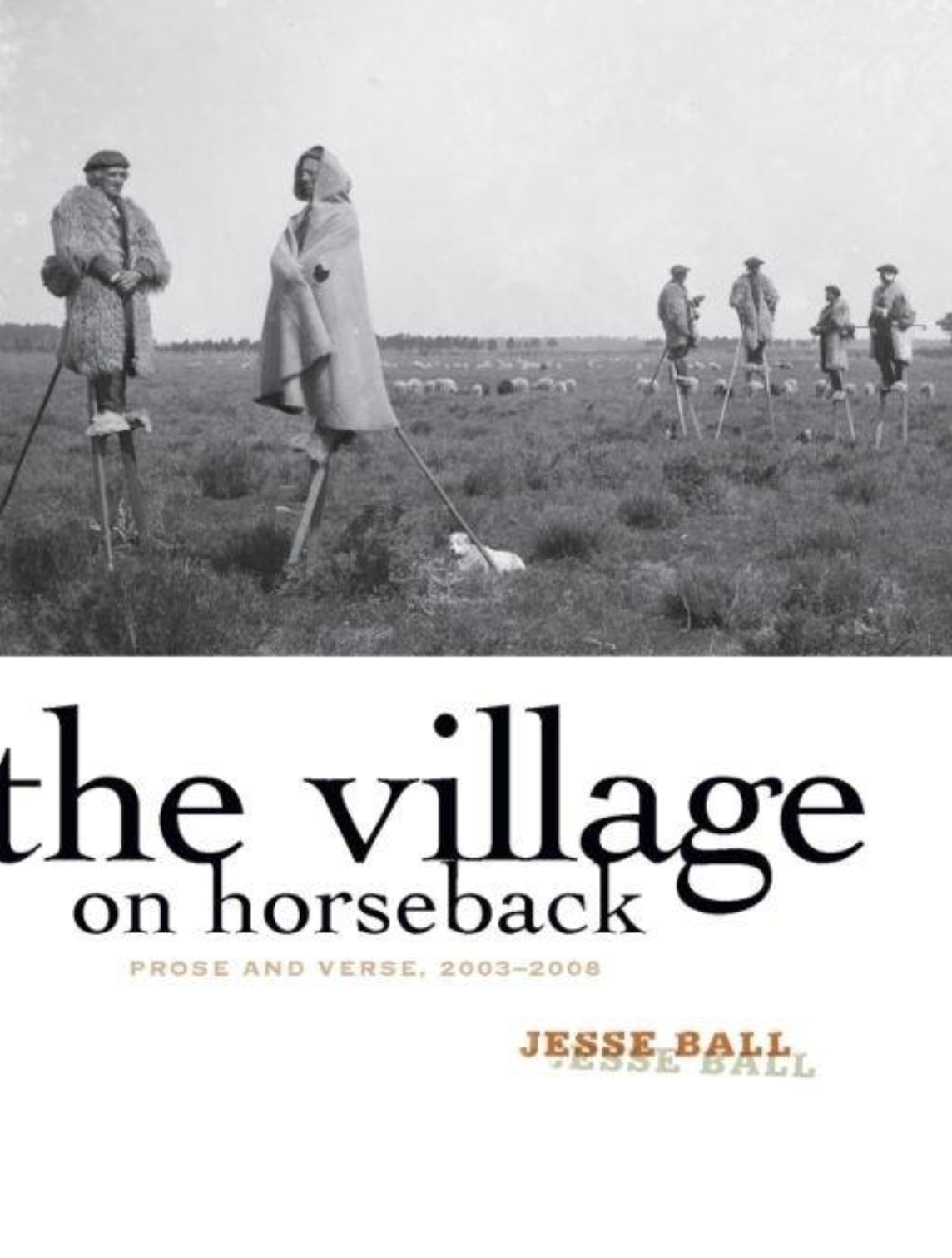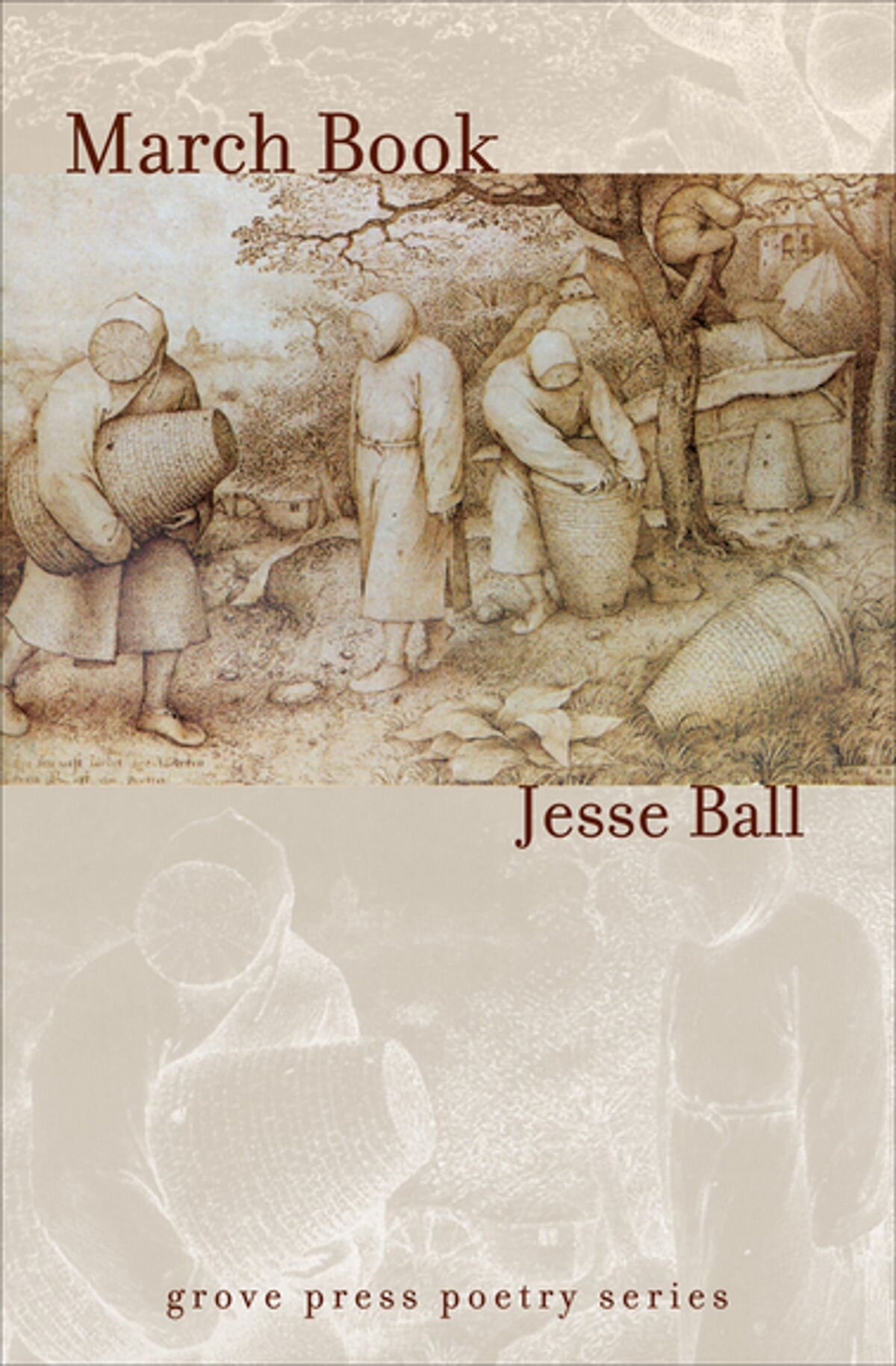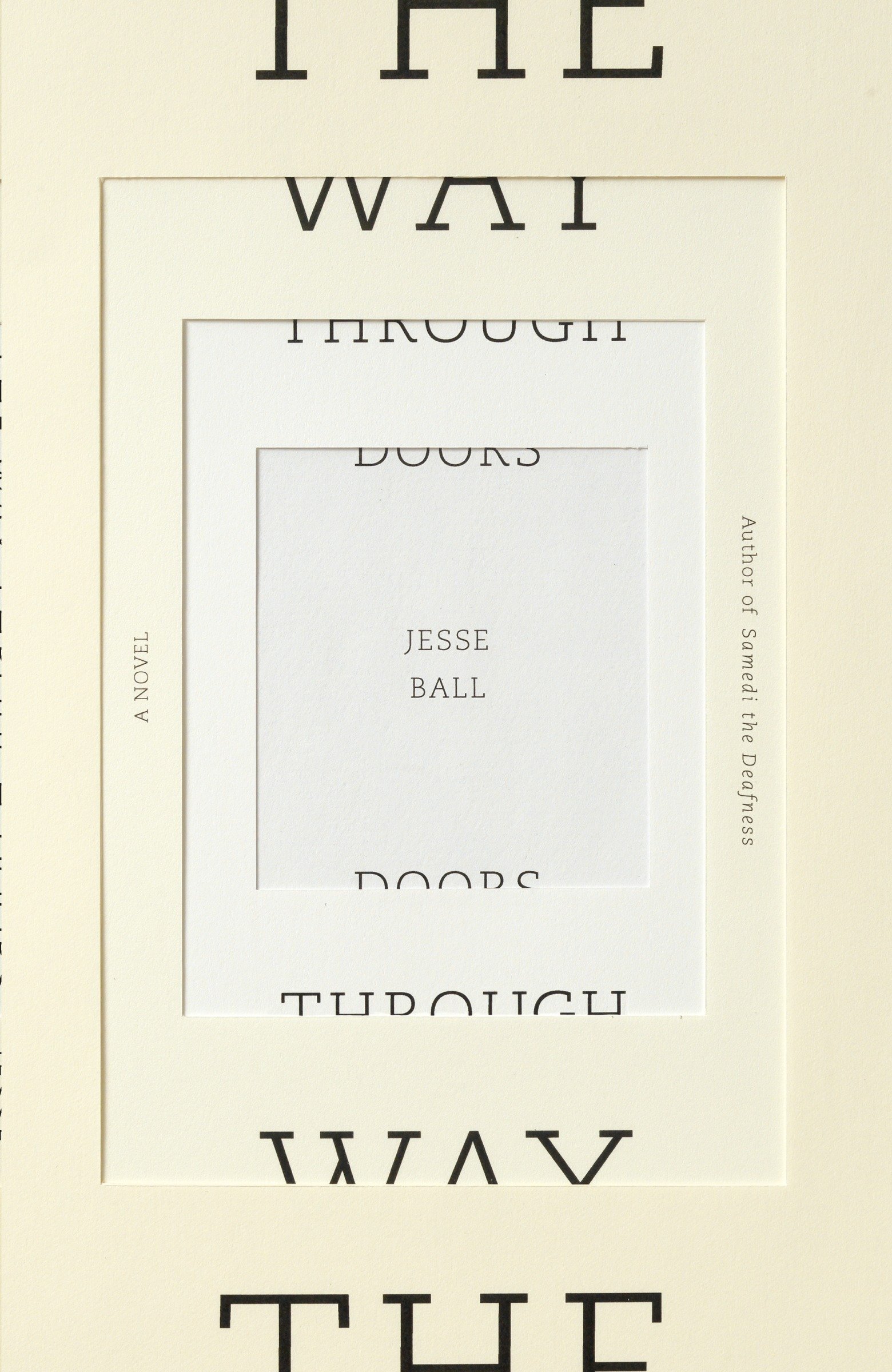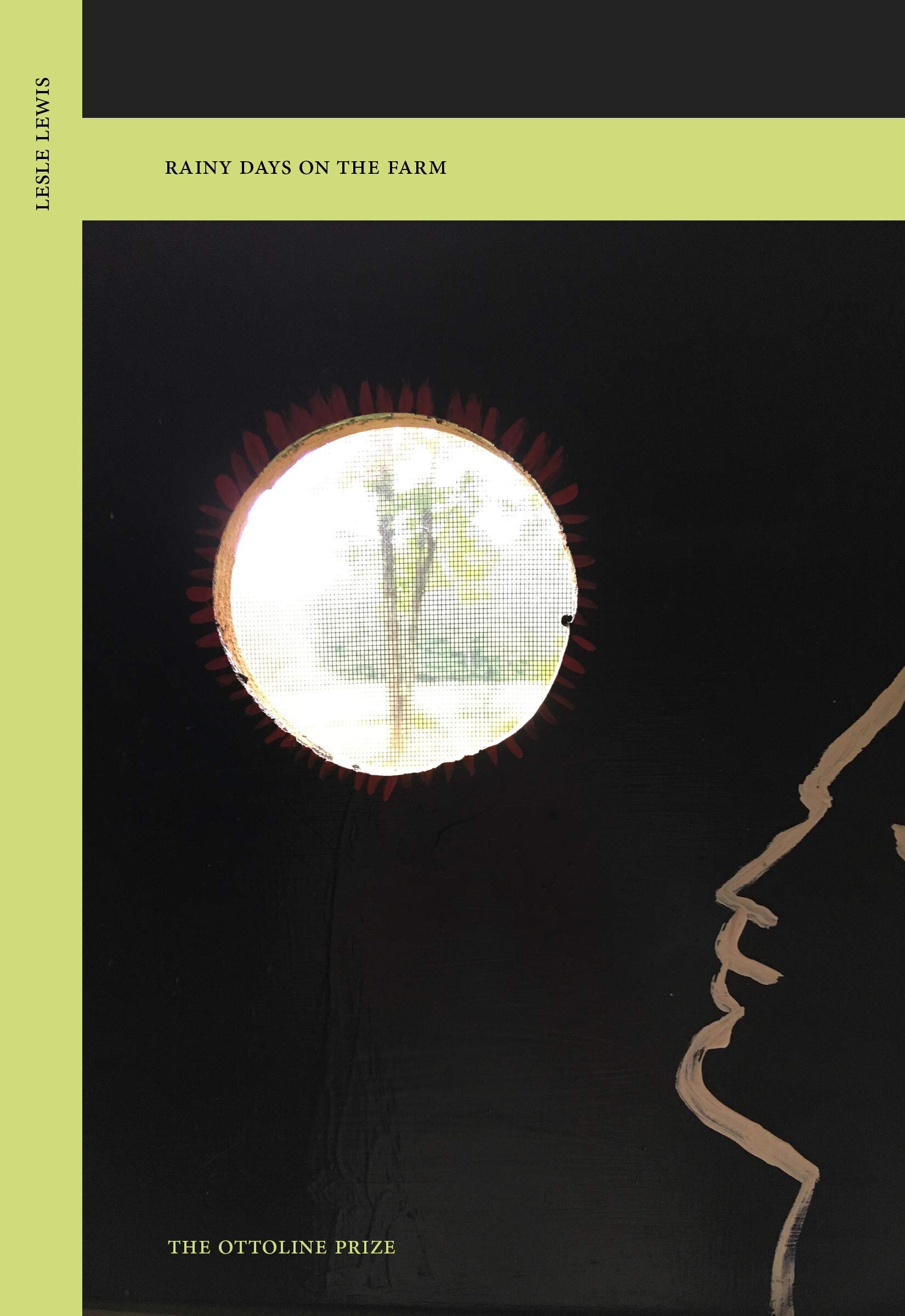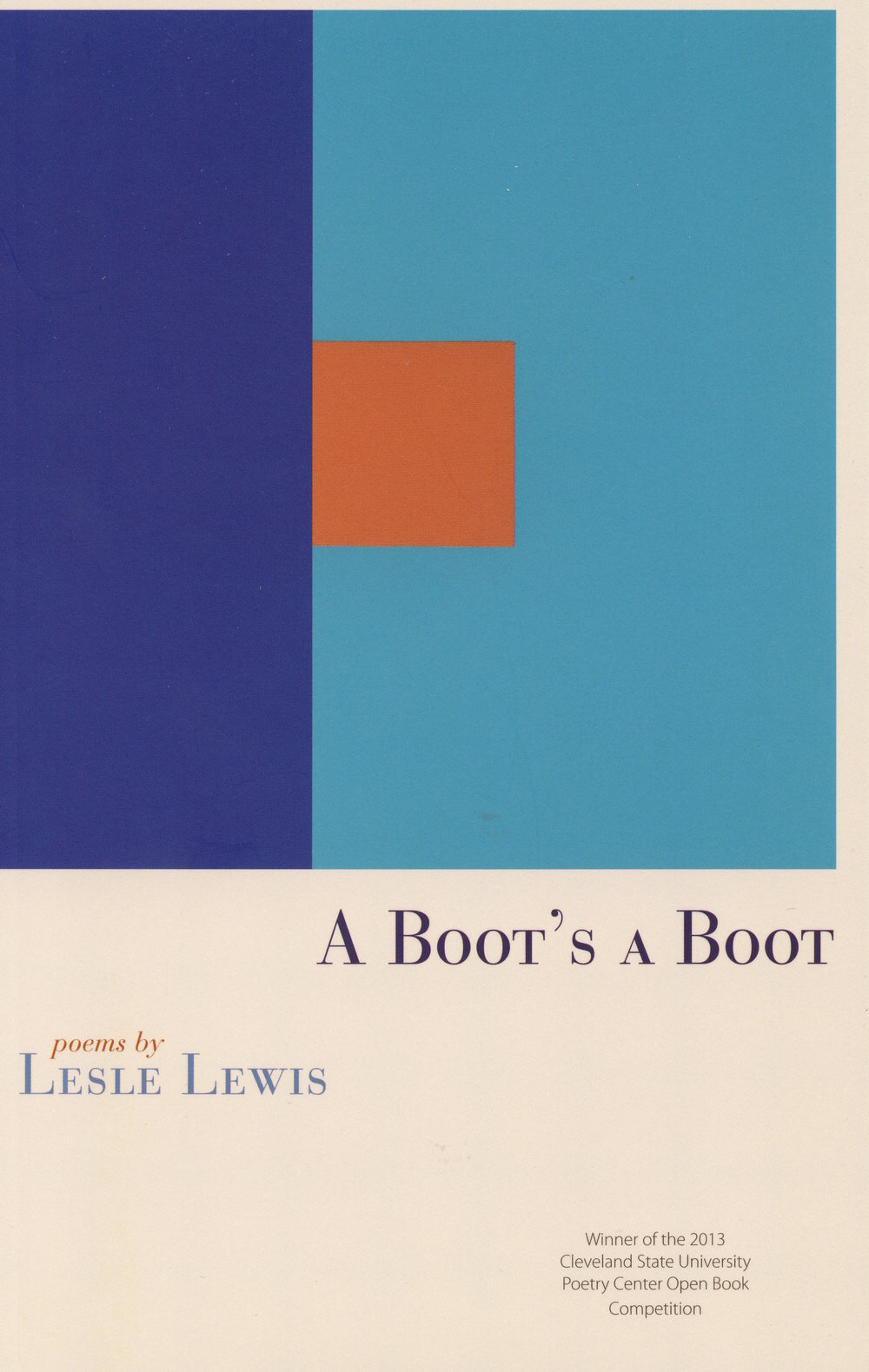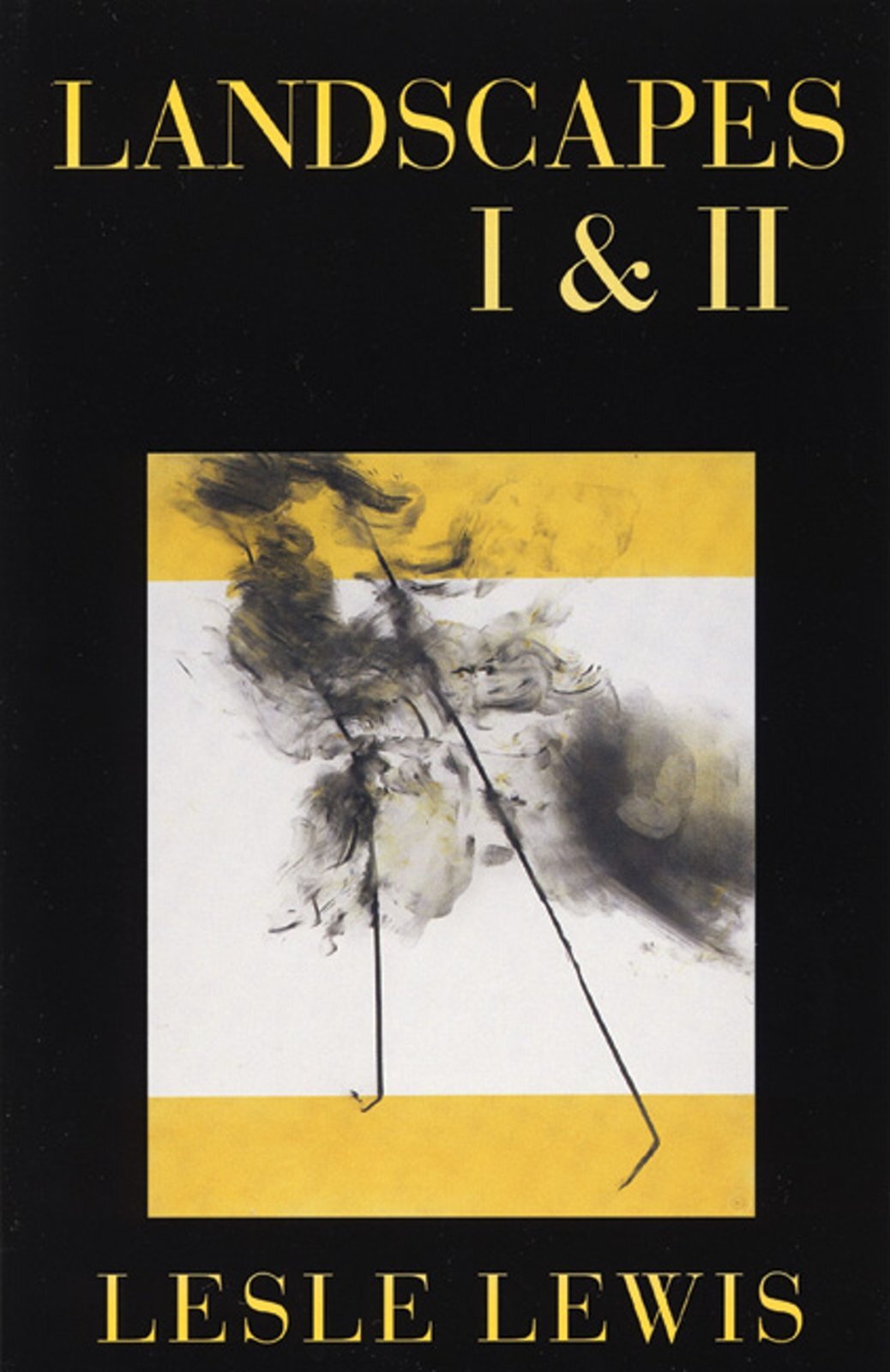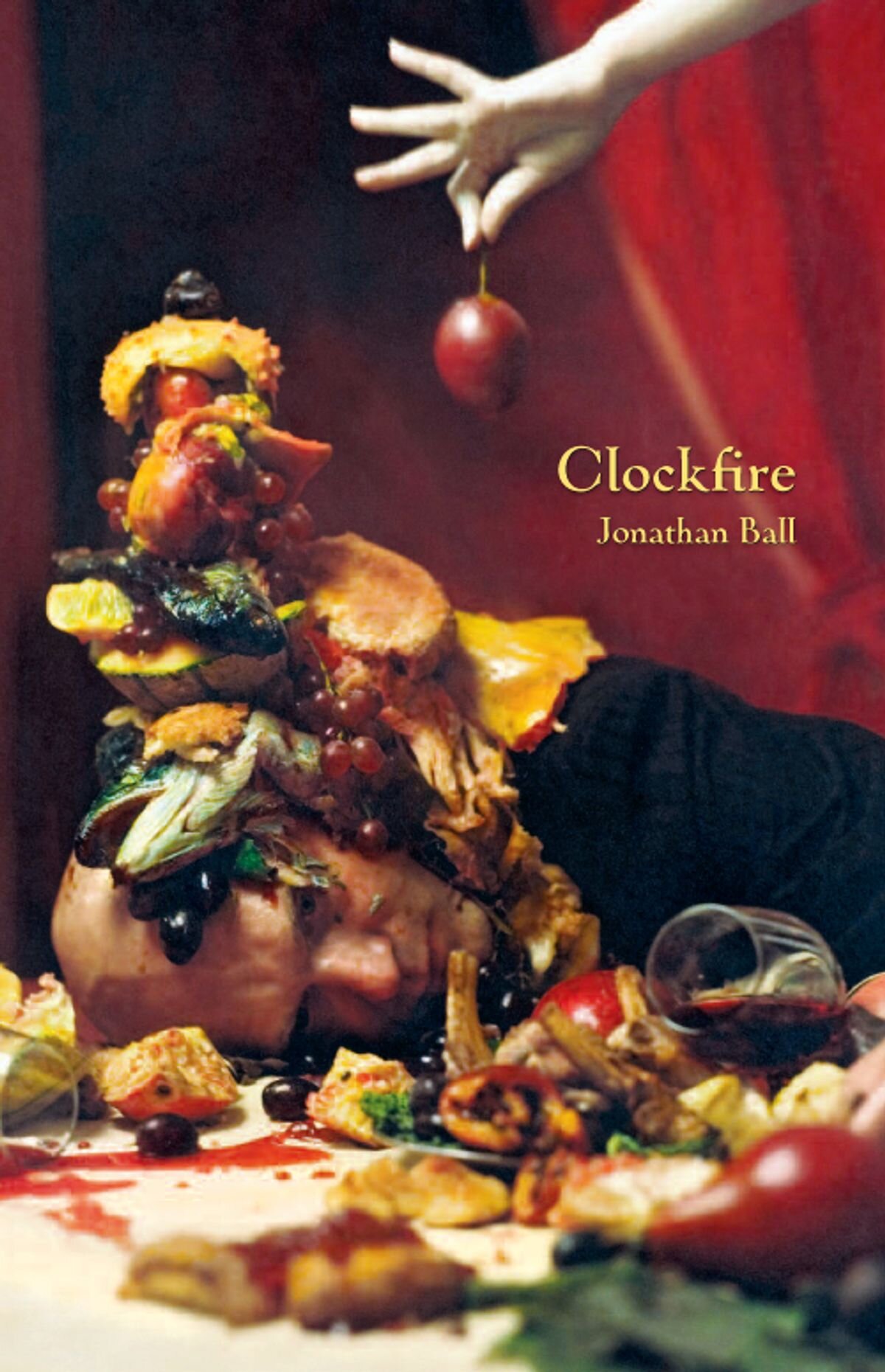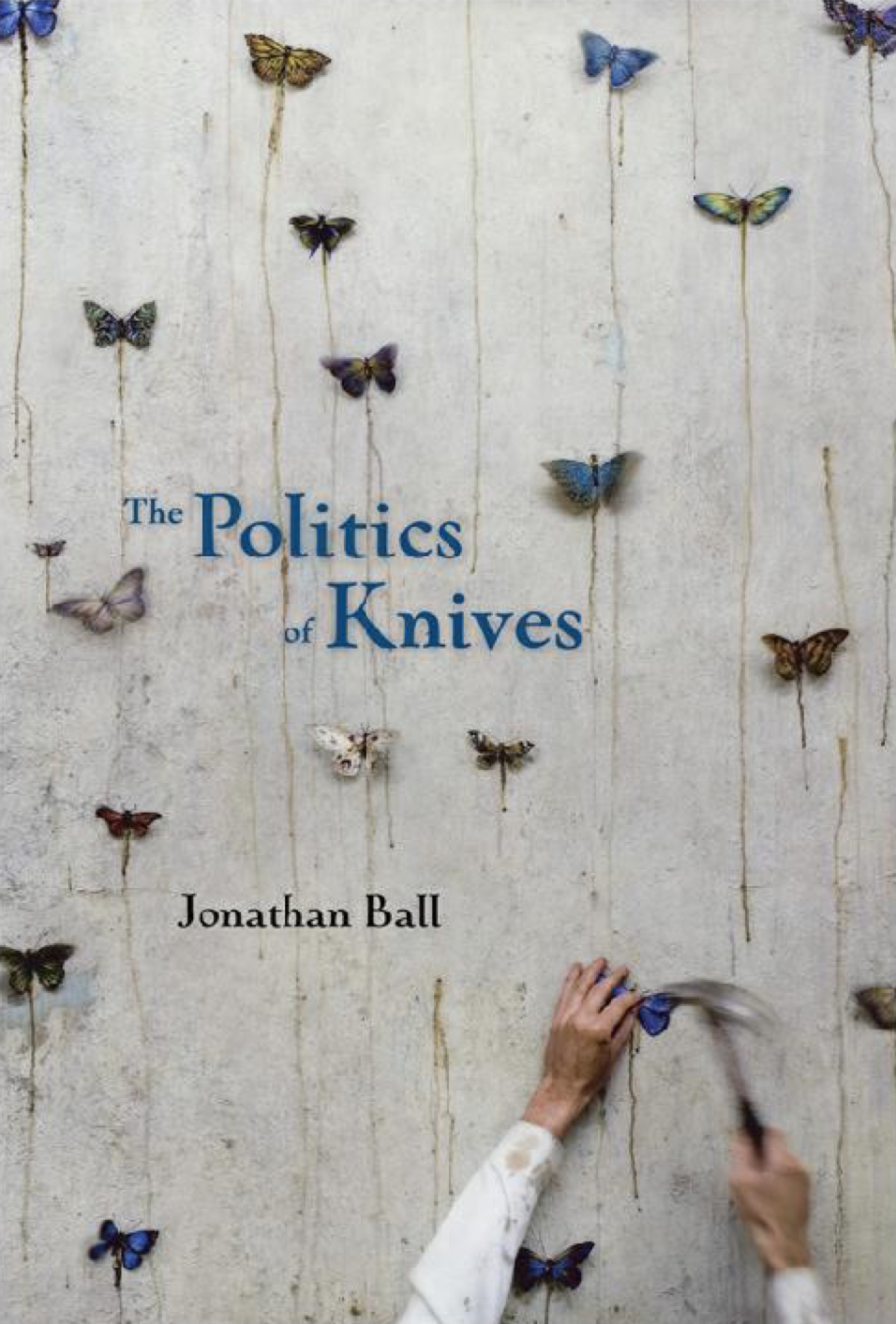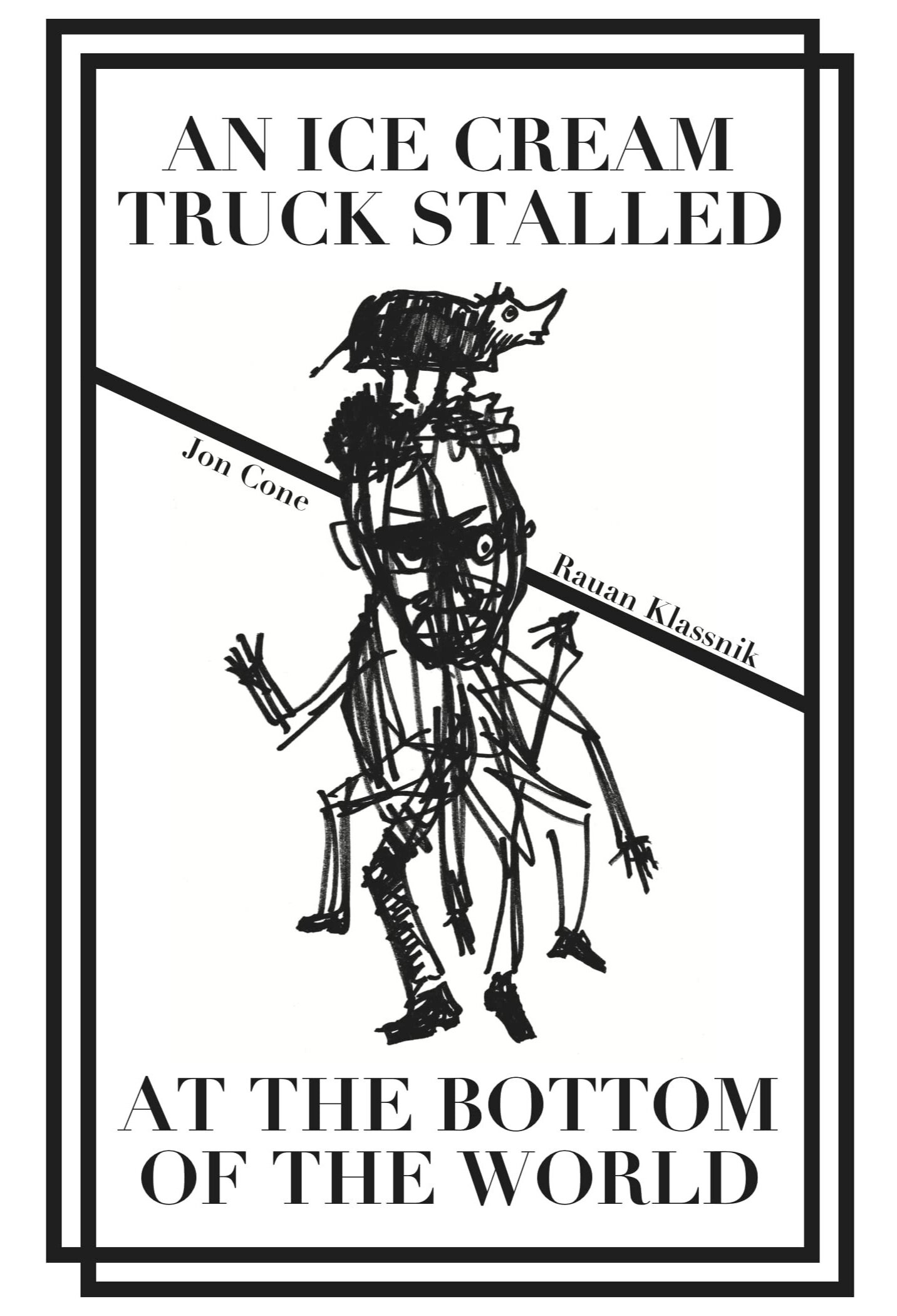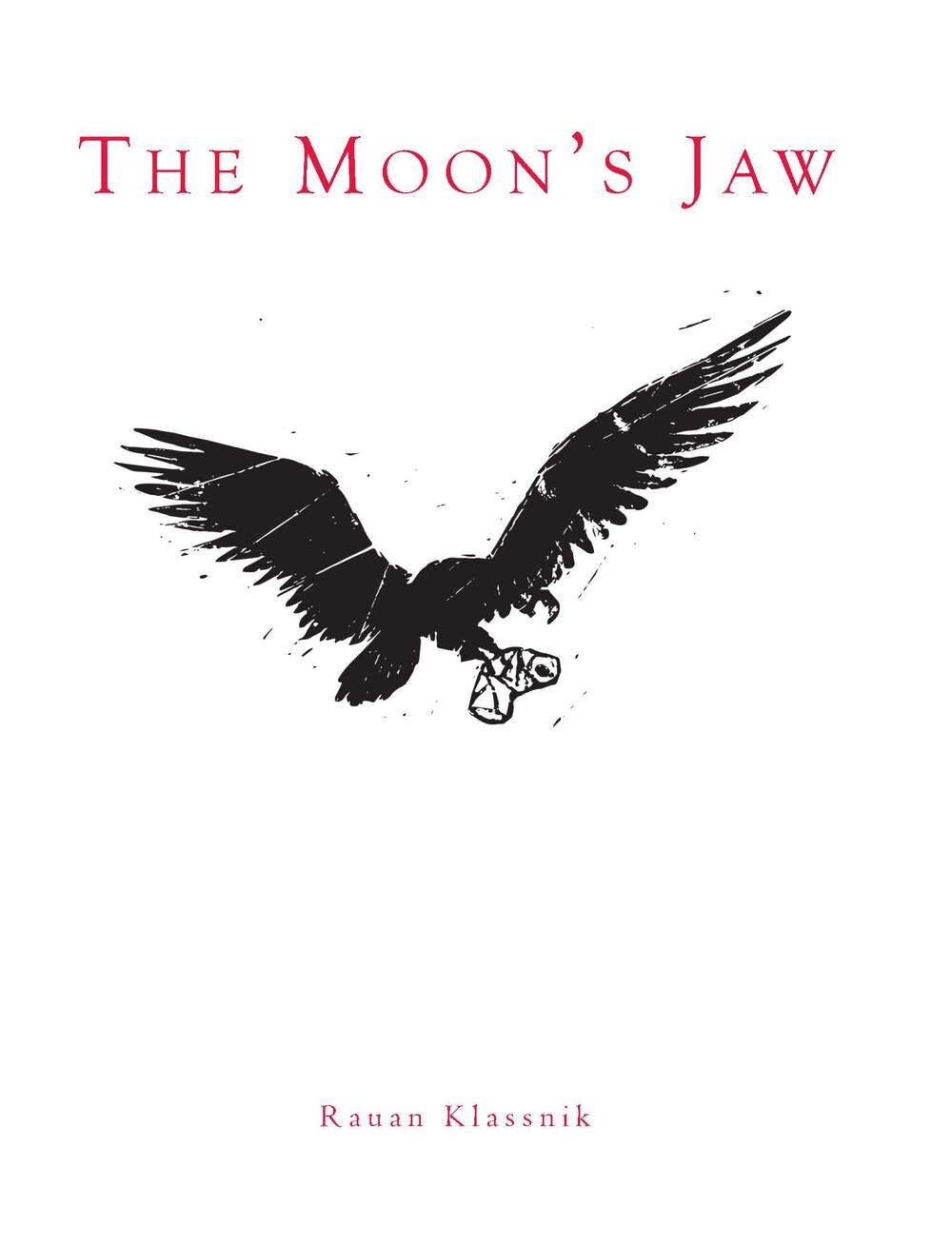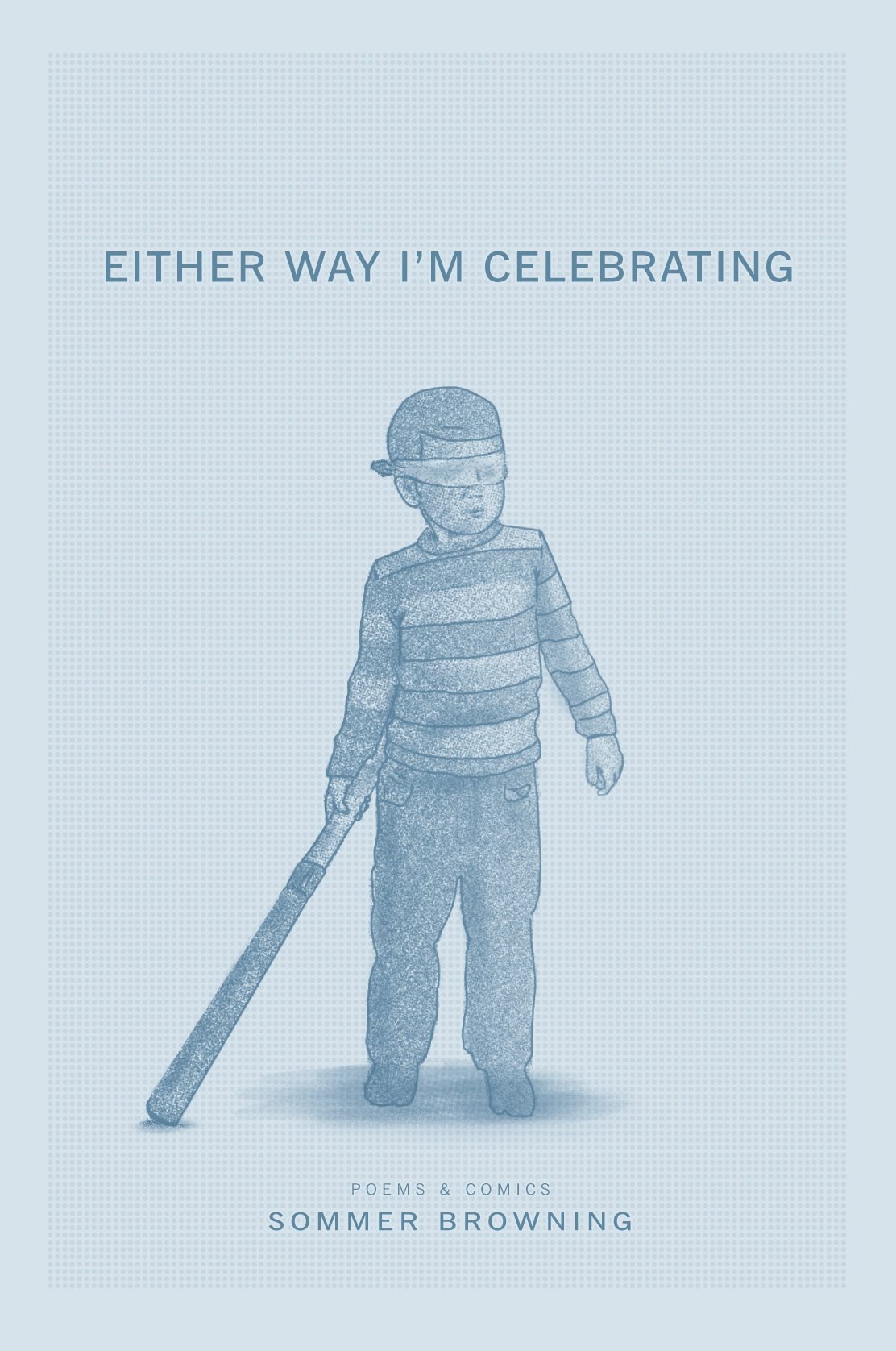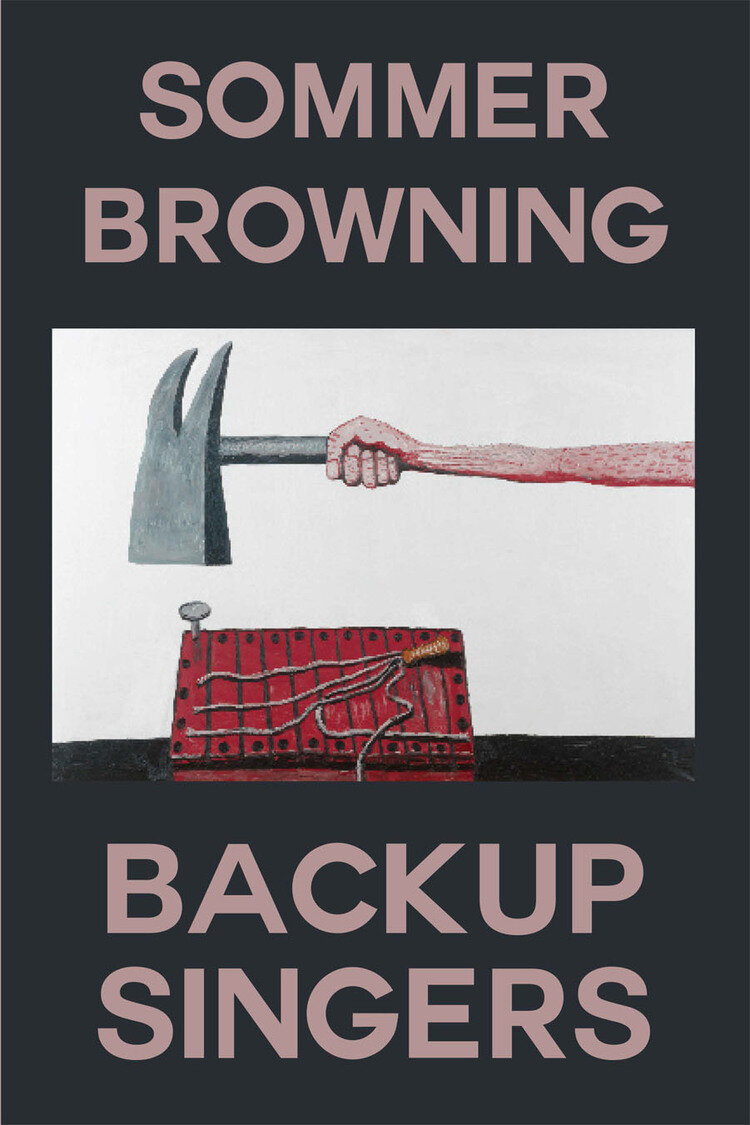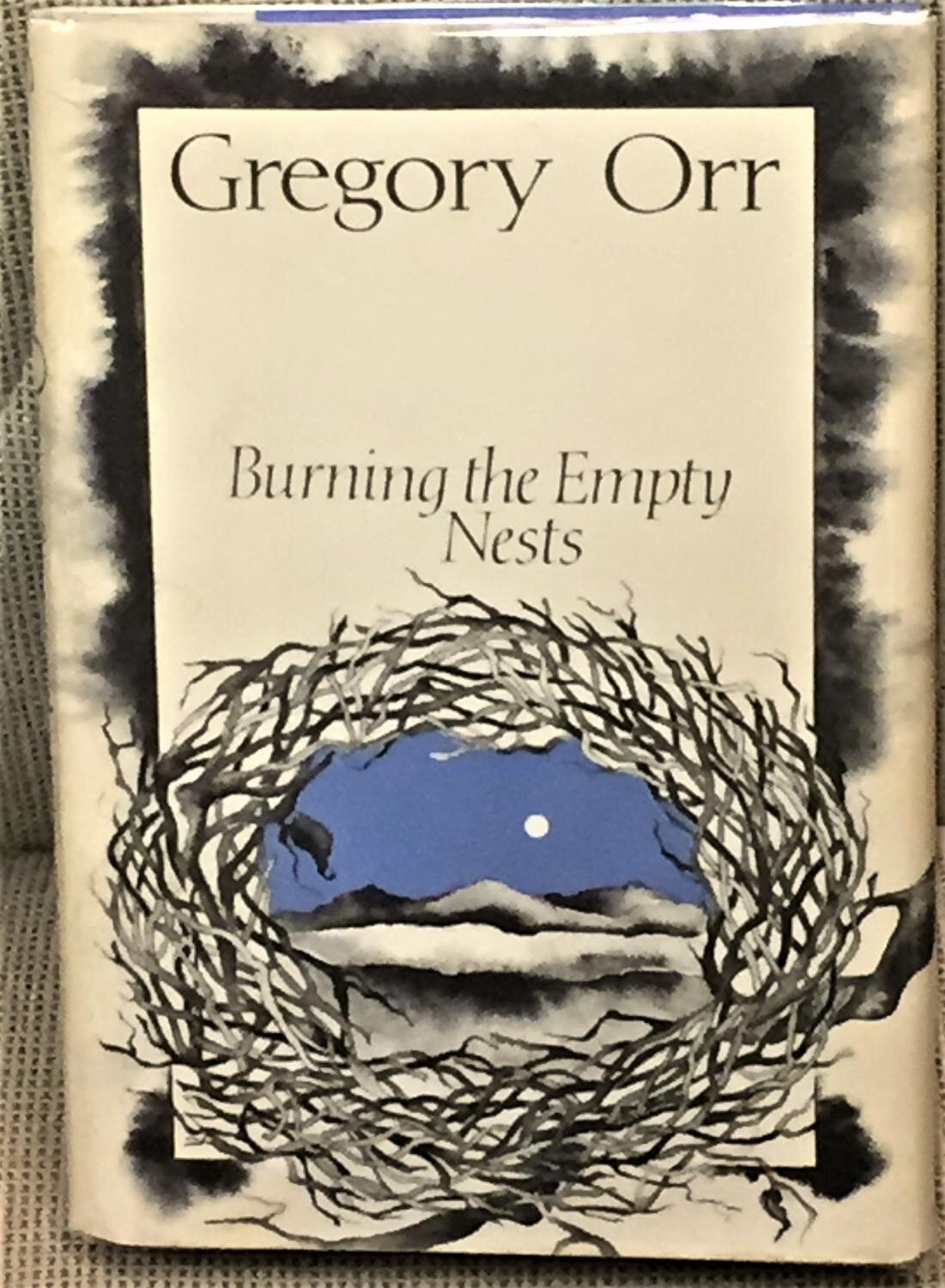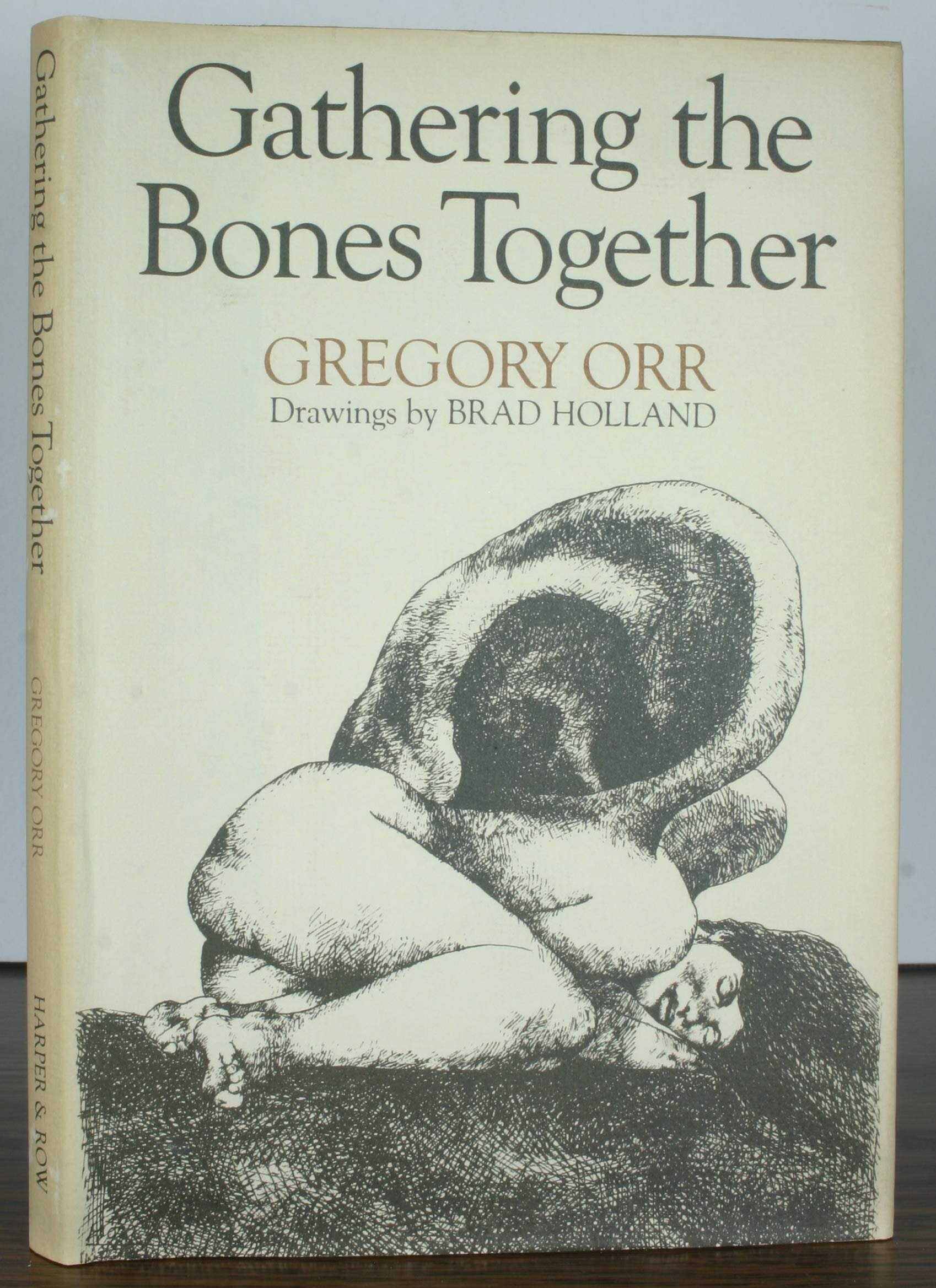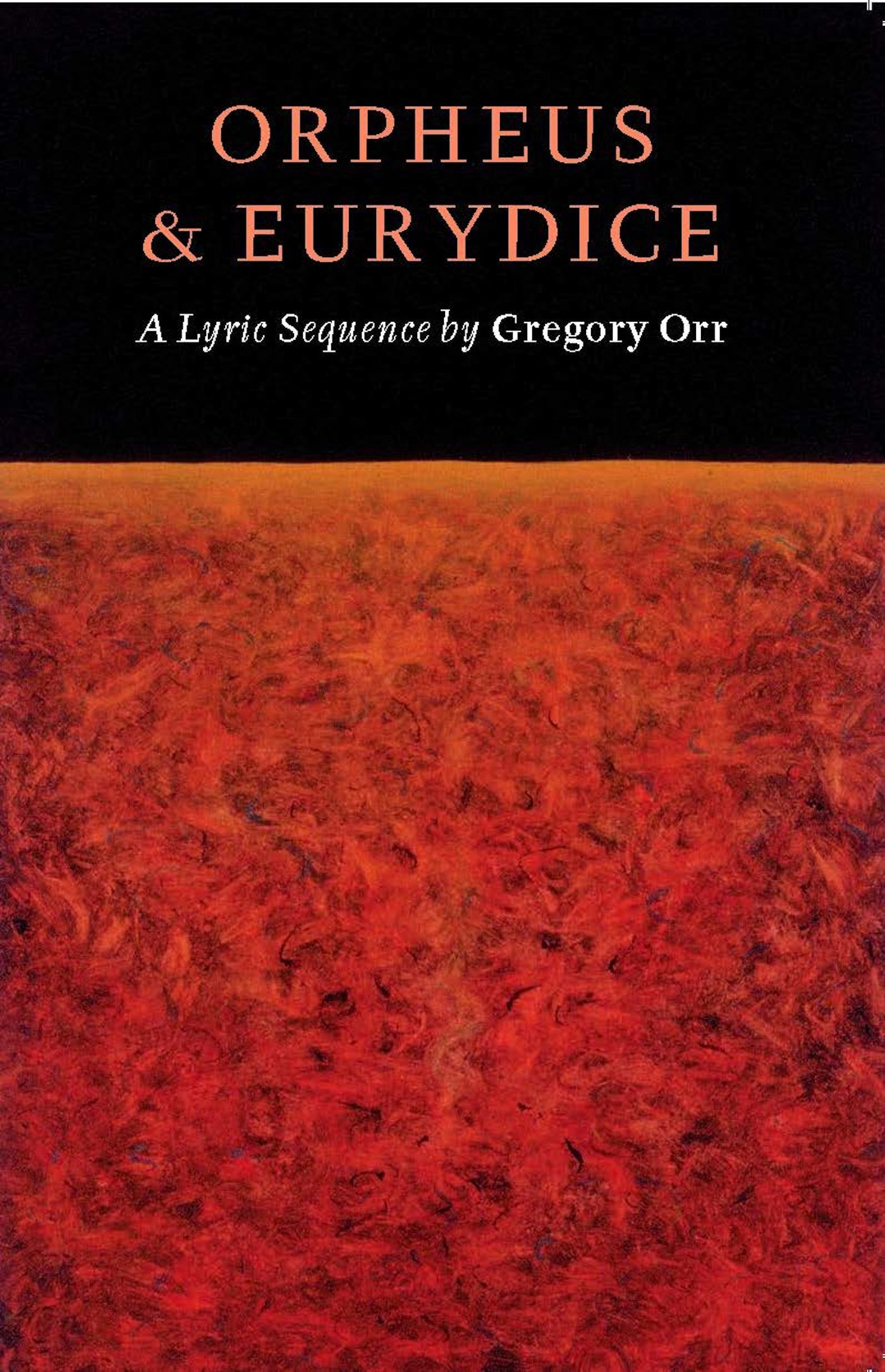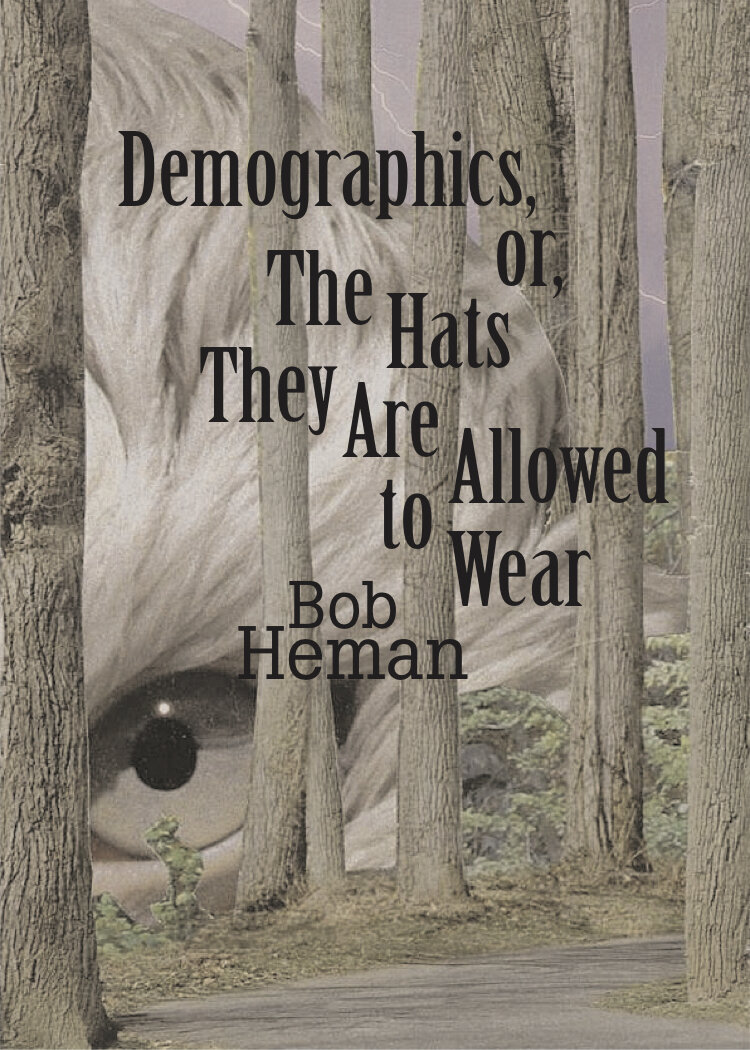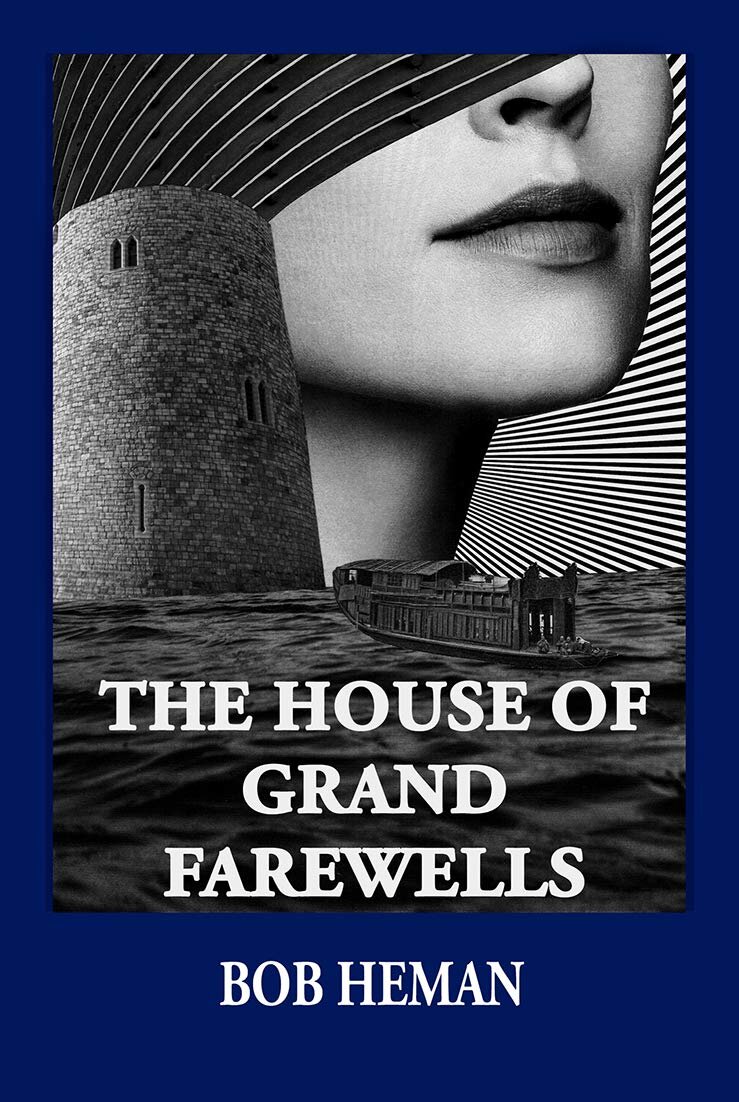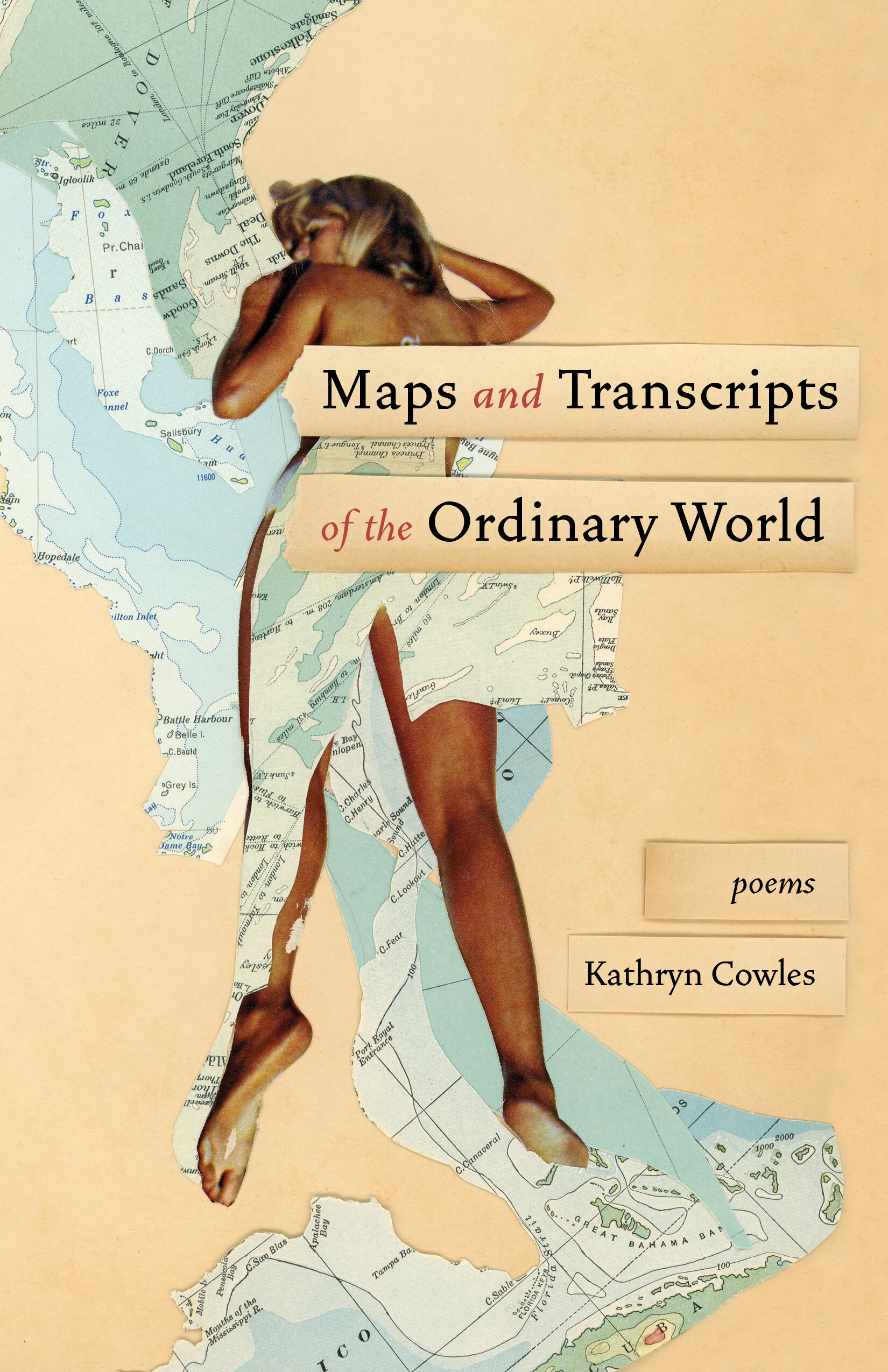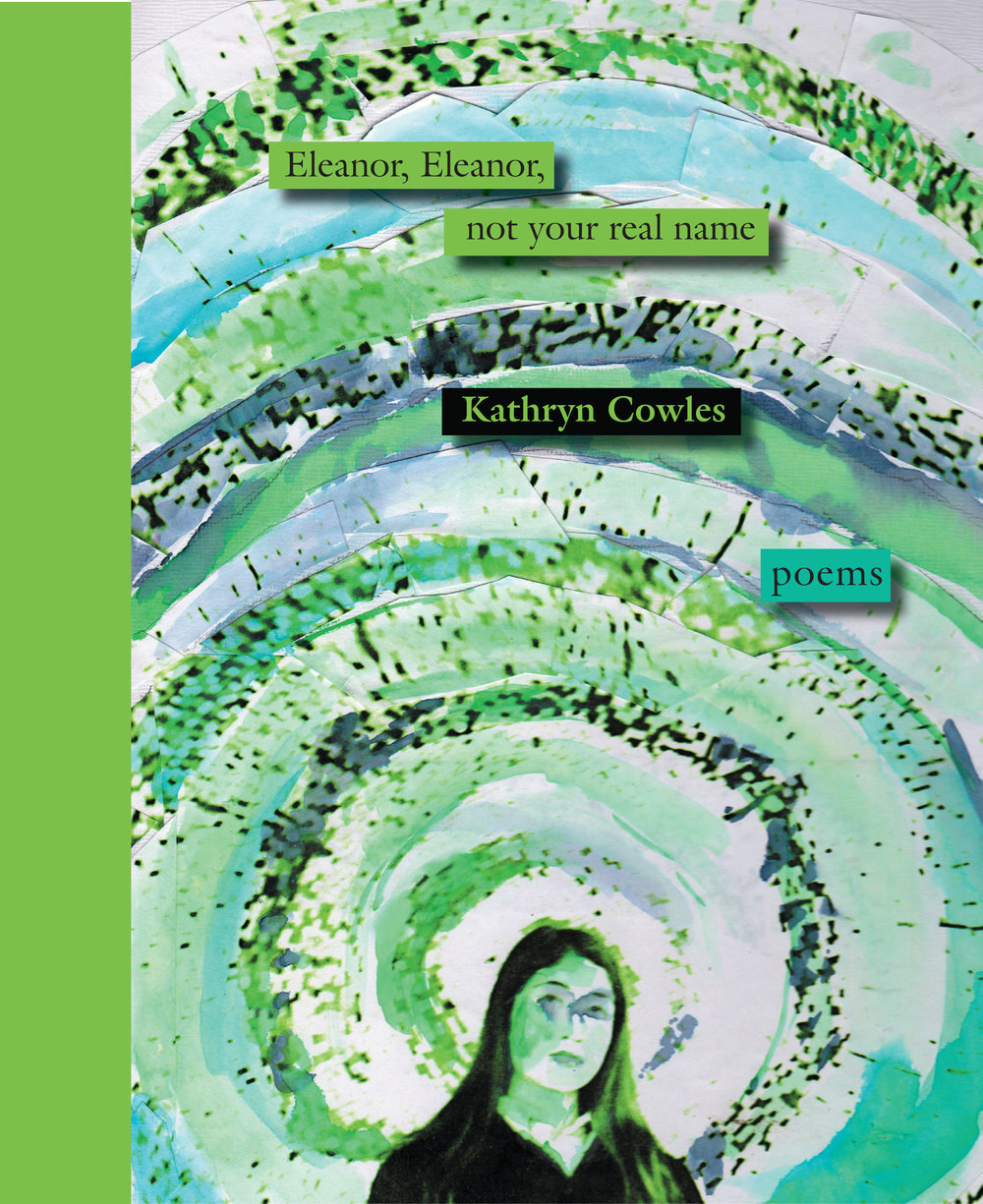What a year. What. A. Year. Despite spending significantly more time at home, I somehow managed to read less books than last year. Where did that time go? I still read a great deal - mainly poetry, the occasional novel - and I’ve compiled a list of some of my favorites. I love how most of the names are names I didn’t know about last year and this growing personal library is a highlight from a rough year. Anyway, books!
José Hernández Díaz
The Fire Eater (2020)
The Fire Eater is a debut chapbook of prose poems with skeletons and mimes and a bush that turns you to ash or water, depending on the color of the rose. These tiny fables blend magic with reality, the surreal with the routine. There’s a hole to Hell. There’s an astronaut party. It's all very Californian. It’s all very Hernández Díaz. Somewhere atop a cloud made of cardboard and paint, James Tate and Russell Edson are raising high their pints.
Read our interview here.
Hilary Leichter
Temporary (2020)
I read something somewhere that described Hilary Leichter’s debut novel Temporary as having "dream logic" and I fully agree. This is a short and sweet novel full of whimsy, comedy, fantasy, myth, mayhem, heartbreak, lore. Like Edward Scissorhands visiting the DMV. Like Leonora Carrington as a substitute teacher. The book dropkicks you into the ocean, taking extensive notes as you perform a formless free-fall. A tumble of fever speak. It's one hell of a temporary stay for 180 pages.
Mathias Svalina
The Depression (w. Jon Pack) (2020)
America at Play (2020)
"There was a man with gardens for feet."
Mathias Svalina released two tremendous books this year: one of prose poems in collaboration with photographer Jon Pack and the other an assembly of absurd/impossible children’s games. Svalina builds worlds where anything can happen. Inventive and sorrowful and dark and tender and touching. Icing on the cake: I’m currently in the process of receiving 100 dreams from Svalina. His words have been keeping me company all year long.
Read our interview here.
Sebastian Castillo
Not I (2020)
49 Venezuelan Novels (2017)
How a list becomes a novel. How an exercise turns into an offering. Castillo’s book Not I stretches the possibilities of the narrative, of the storyteller’s possibilities, and provides both a micro and macro look at statements and confessions and reflections and hopes. With each line beginning with ‘I’ and each section focusing on a particular verb tense, Not I creates a whirlwind combination of language and imagery. It’s somehow the most organized autobiographical novel and also the most abstract. And while I read Castillo’s first book years ago, I read 49 Venezuelan Novels again recently and these microfictions deserve more love. Short and sweet, each page contains its own world.
Read our interview here.
Sarah J. Sloat
Hotel Almighty (2020)
"there are lions behind / and by-God lions ahead"
Sarah J. Sloat's visual spectacles feel like unique and refreshing dreamscapes. Where a table or desk transforms into a craft bonanza of vivid lines, vintage clippings, yarn, scissors, wallpaper, string. Hotel Almighty offers all of those things. Bring me erasure. Bring me poetry. Bring me analog collage. Bring me Misery on every damn page. This is a book unlike any other on my shelf. I interviewed her in 2018, when the book was still a work in progress, and it felt great to receive it in the mail as a package alongside a variety of collage supplies.
Read our interview here.
Pablo Katchadjian
Thanks (2019)
What to Do (2016)
Katchadjian’s Thanks, translated from the Spanish by Priscilla Posada, is a novel that has been dipped in mescaline. Peyote poetry soaking in a medieval world. Jim Woodring's character Frank writing a book. A hallucinatory whirlwind where every day is similar but different, where every morning starts the same, then grows stranger and stranger and stranger. What to Do, his earlier work (but one I read later) further focuses on this repetition and loop routine where the dream/nightmare can never really end. The page-long entries contain my favorite style of writing - woozy, maddening dream logic, deeply confused, turned around - complete with giants and eight hundred drinkers and rags.
Laura Walker
Book-length fairy tales disguised as prose poems. Magical fragments. Like trying to tell someone your dream as it slowly fades from your gaze. Tornadoes and soldiers and hollow trees and plenty of sky. The mixture of the found, the lost, the haunted, the postcard. Dancing with language and translation and fable and myth. A faded painting in an empty house. Bird erasures. Poems as maps inventing compasses. The kinds I seek when I open a new book. Laura Walker is my favorite poet you haven’t read.
Taisia Kitaiskaia
Taisia Kitaiskaia’s debut collection of poems is a fairy tale whirlwind so rich in language. On The Host Dispatch podcast, her poems were described as maximalist and sweaty, and yes to both. Dripping in folklore and myth and surrealist whimsy, this is a book for those who want more Mother Goose, more fable, more Grimm, those who wander into the witch's hut in the middle of the woods with a knapsack full of magical energy drinks. This book revitalized me. Additionally, as a mistake, I ordered Kitaiskaia’s second book of advice from Baga Yaga instead of the first and fell in love with these channeled prose columns.
Matvei Yankelevich
Boris by the Sea changed by life. A book-length ponder. Fragmented dilemmas. A novella of conundrums in poetic form. Bewilderment, confusion, second-guessing, absurdism, doubt, skepticism, and uncertainty run rampant in this unique and concise collection. It showed me a new way to connect a collection. Yankelevich’s other work further highlights a writer in love with the word and the idea of a writer in love with the word and a writer uncertain of love for such words and lines and paragraphs and pages. The fragments, the leaps, the balancing acts, the concerns that appear as the writer approaches the blank page, each page, like new.
Read a really beautiful sample of Boris at Ugly Duckling Presse.
Prathna Lor
Ventriloquism (2010)
"If I had alligators for arms I'd come to your house first."
I was ten years late to the party of Ventriloquism, but damn am I glad I arrived. Here is a short and punctual collection of surrealist prose poetry ballroom dancing with the grotesque, the sexual, the confused. Every time I open a book, I want the words to be like the words in this book. And to see it dedicated to Sasha Fletcher made me happy as can be.
Johannes Göransson
The Sugar Book (2015)
Entrance to a colonial pageant in which we all begin to intricate (2011)
Dear Ra (a Story in Flinches) (2008)
Pilot: Johann the Carousel Horse (2008)
It wasn’t until the fall of this year that I began reading Göransson. I still have numerous books to go through but the quartet I have read has left me tattered, bandaged, speechless, in awe. Here we have letters of messy imagination. A whirlwind of language, pained and alive. Fragmented blends of fables gone wrong. A dozen animated personalities being dropkicked onto a stage of endlessness and nothingness.
"The parades were all disinfected."
Persona-driven prose poems that dance with language and vision. Like a play in a banquet hall in the head of a war veteran. Like schizophrenia meddling in cocaine. Debauched gods under a tar-soaked sun. Rip open my skull for I am in love.
“I was carsick / the nightingale / was wrecked / I sent a postcard / to America wish / you were here / with a gas mask / and carnations.”
Paige Lewis
Space Struck (2020)
A meditative offering on nature, the cosmos, memory, and reality. Reading Space Struck is like watching Planet Earth inside an abandoned chapel. Like praying in a tree-house full of endangered butterflies as a lumberjack sharpens their saw below. Juggling the ups and downs of the animal world with the ups and downs of humanity, it is a book to take on a walk, to hold near a garden, to bring to the star party, to have nearby as you approach the blank page.
Read our interview here.
Matt Bell
This is the kind of novel I am constantly seeking. Deep lakes, bear caves, multiple moons, numerous sons, infinite rooms, a scorched woman at the bottom of the world. This is a rollercoaster track where each drop and turn adds to the epic, to the myth, to the woodland fable. It felt like a very long bedtime story, one I felt seeping into my own writing and my dreams. Unlike any other novel I've read. And to give you an idea of the brevity I prefer, this was the biggest book I read this year.
Jinnwoo
Little Hollywood (2020)
Combining tiny plays with a cast of eccentric actors, Little Hollywood’s multimedia approach feels more like poetry comics and less like scripts mixed with paper dolls. It has heart, it has confessions, it has an ongoing search for identity and connection within both life and death. Despite the size of this hefty collection, it's a fast-paced read. Unique and wild and alive.
Jesse Ball
The Way Through Doors (2009)
The Village on Horseback: Prose and Verse (2003-2008)
Vera & Linus (2006)
March Book (2004)
Ball writes unlike any other. I began with his debut collection of poems and - with my jaw still on the ground - read The Village on Horseback. The two novellas contained within ('Pieter Emily' and 'The Early Deaths of Lubeck, Brennan, Harp, and Carr') are two of the best stories I’ve ever read. I followed this up with Vera & Linus, which is like a Russian doll of daydreams. A fable within a fable within a fable. Every page is its own poem. Every line holds the world. Like a painter inside of a painting making a universe out of clay. I know I still have to read Ball’s novels, as I haven’t read anything by him from 2010 onward, but his early work is full of poetry of love and violence and revenge and forgiveness and sorrow. Dense and layered and rewarding reads, best enjoyed in a forest, within a hollow tree full of fog.
Lesle Lewis
Rainy Days on the Farm (2019)
a boot’s a boot (2014)
lie down too (2011)
Landscape I & 2 (2006)
Small Boat (2003)
To spend time with Lewis' work is to slowly float. Small Boat was my proper introduction but every collection pulled away my dinner tablecloth and left the dishes intact. Lines like, "All night I waited for you to saw off my head," and "Why does only the head need a pillow?" and "It is the horses in the trees" and "It is the moon over the hat." Wonder and joy and curiosity and whimsy and rhythm. Movement, bewilderment. Leaping fables. Jumps of love. Plainspoken surrealism. Dreamtalk fragments. Dissecting a prose poem and focusing on the line.
"At night in our insomniac boats, we hold ten foot long brushes and make easy sweeps of the ceilings."
Read our interview here.
Jonathan Ball
The Politics of Knives (2012)
Clockfire (2006)
Clockfire inspired the hell out of me. Made up of one-act, one-page plays, it's a dazzle, a delight. Demented and dark, yet comic and refreshing. Each page is a new fable. A new blank canvas. If I was a professor, I'd teach this one in class. This mixed with The Politics of Knives (2012) makes Jonathan Ball one of my favorite modern surrealists.
Michael Stewart
The Hieroglyphics (2011)
I’m a sucker for creation myths. The Hieroglyphics is a book of fabulist prose poems that feel as old as time. Reconstructed allegories, biblical and vivid. It might be the first and only book I have read twice in one day. If you’re looking for more from Michael Stewart, go to his website. It’s a joy.
Elaine Equi
The Intangibles (2019)
Click and Clone (2011)
The Cloud of Knowable Things (2003)
Voice-Over (1998)
Friendship with Things (1998)
Decoy (1994)
Surface Tension (1989)
Accessories (1988)
I read a lot of Elaine Equi this year. I started reading her work some time last year but didn’t fully dive in until this summer. Her poems are full of art. Playful and imaginative, with fairy tale elements, erasure, fragments, centos, prose poems, collages, all tied together with a unique and observant and tender voice. It all feels meditative with a splash of humor and melancholy. Every word matters. It’s funny, it’s touching. It's all so concise.
Rauan Klassnik
An Ice Cream Truck Stalled at the Bottom of the World (w. Jon Cone) (2020)
Sky Rat (2014)
The Moon’s Jaw (2013)
Holy Land (2008)
Madmen hanging from chandeliers. Cats in cages. Nightmares of guns and sex. Mad fragments. Prose poems. Violence drenched in sex. Books like haunted candles. Books like sacred screams. Poems disguised as short plays disguised as intermissions while waiting for the end of the world. Klassnik’s hellscapes visit purgatory but never heaven. Stories within stories without stories. Blood.
Norman Lock
Grim Tales (2011)
Norman Lock’s Grim Tales is an encyclopedia of misfortune. A compendium of terror. Fable and myth and mystic and god. Twisted nightmares and Twilight Zone-esque microfictions. I loved every damn page.
Sommer Browning
Backup Singers (2014)
Either Way I’m Celebrating (2011)
Sommer Browning’s work is sharp and funny and totally original. I read these two books with a steady smirk on my face, jealous and dazzled with each playful and inventive page. Backup Singers spoke to my librarian soul and Either Way I'm Celebrating added more surrealism and wild to the mix. Never believe the concierge. If you want more laughs (you do), check out her standup.
Ilya Kaminsky
Deaf Republic (2020)
A hushed parable of heartbreak and death and protest and backlash and corruption and hurt. What a moving collection, heart-wrenching in its mixture of tragedy and puppetry, sorrow and humor, authority and theater. An immersive and powerful read from beginning to end.
Noah Falck
Full of humor and heart, Falck’s work is tender and fantastical, offering observations with dream-talk surrealism and an awareness of absence. His 2020 collection Exclusions interacts with the ‘without’. It spotlights the gone. Missing mathematics and morning breath, excluding children and gun control. Does the absence of nostalgia make something more nostalgic? I’m grateful to have read Falck’s poetry this year and to have chatted with him back in the summer.
Read our interview here.
Molly Gaudry
We Take Me Apart (2010)
I wanted this novella in flash to be about 100 pages longer. A twisted fairy tale that unravels and becomes wonderfully unhinged. Beautiful, stunning, violent language with such hypnotizing rhythm. The ending (the ending!) will haunt me forever.
Gregory Orr
Burning the Empty Nests (1973)
Gathering the Bones Together (1975)
The Red House (1980)
Orpheus & Eurydice (2001)
Orr packs myth with fable with dream logic into these tiny, compact narrative poems. A truly memorable, delicate, heart-wrenching style. He reminds me of Vasko Popa if Popa was less cosmic, more woodland. I’m still chipping away at his bibliography (by way of his New & Selected), but his first two collections (Burning the Empty Nests and Gathering the Bones Together) are the two best opening collections I’ve ever read.
C.T. Salazar
Both of C.T. Salazar’s chapbooks are tiny enough to fit in your back pocket. With the newest, the title is longer than many of the included fragments: a series of meditative ‘stitches’ patching a galaxy, capturing a breath, preserving worlds in various jars. Along with these two, C.T. has American Cavewall Sonnets dropping next year (the cover is a dream) as well as the debut full-length Headless John the Baptist Hitchhiking. C.T. wins best book titles.
Read our interview here.
Mike Andrelczyk
Gateway 2000 and Other Poems (2020)
Dissolving: Haiku (2019)
Gateway 2000 makes me happy. “Nimble in scope and wicked in scroll.” I feel like Andrelczyk is the kind of poet who is constantly jotting down notes, writing ideas, observations, ponders. His poetry is full of humor and love and abrupt turns and surprises. Like a quiet meditation where you end up thinking about God in a hot dog costume consuming a room of shoes. He’s never taking things too seriously and his collections are nice reminders to lighten up a bit. Interview coming soon.
Kit Schluter
Pierrot’s Fingernails (2020)
The Good in Having a Nuclear Family (2019)
Schluter’s debut Pierrot’s Fingernails is a dense and challenging and rewarding collection. It feels like tumbling back in time with a dunce cap and a diary. It’s a formal and meditative showcase of the poet’s (and translator’s) love of words, of absurdities, of classics. A celebration of the line. If you dig this collection, read his 2019 series of short pieces that deal with a talking towel, a rude lobster, a dog birthday, a grotesque foot, and a woman who looks like a giant mouse.
Adam O. Davis
Index of Haunted Houses (2020)
A travelogue of haunted houses. Ghost prose poems. Foggy, nostalgic fragments that feel like both erasure and haiku. I bought this collection after hearing Davis read and discuss (in particular how he wanted to include a book within a book). This collection is one to read once the sun goes to sleep.
Hiroko Oyamada
The Hole (2020)
The Hole is a short and eerie story. I found myself thinking of it almost as a companion piece for Max Porter's Lanny. New family in new countryside with strange folkloric presence sweeping through the area. Elements of Leonora Carrington and Brian Evenson also come to mind. This is a great and unsettling novella. One that really started to pick up the pace and was a speedy page-turner all the way until the chilling end.
Mark Haber
Reinhardt’s Garden (2019)
Reinhardt’s Garden is a 150 page paragraph. It’s a spiraling, meandering, enchanting, hysterical narrative. Compact and full of narcotic energy and character, this is equal parts fever dream and coffee chug and vision quest and love triangle. I loved how it leapt and jumped and spun around and circled back. A novel that ingested me and later spit me out. The final visual feels tattooed to my skull.
Bob Heman
The House of Grand Farewells (2018)
Demographics (2009) (Free PDF)
How it All Began (2007) (Free PDF)
Cone Investigates (2007) (Free PDF)
I know very little about Bob Heman. My friend the poet C.T. Salazar shared a poem of Heman’s from an issue of NOON and I was floored. Upon looking for more online, I found three free PDFs of prose poems, seventeen prose poems all titled ‘Information’, and another collection centering around approaching the dictionary at random. While he’s been editing and writing since the 1970s, he remains relatively unknown (at least online) and I picture him walking down the street, handing pamphlets of magic to strangers. I’m going to send Heman some snail mail in 2021 and hope to conduct an interview.
Kathryn Cowles
Maps and Transcripts of the Ordinary World (2020)
Eleanor, Eleanor, Not Your Real Name (2008)
As if by chance, I found the poetry of Kathryn Cowles. I was searching my library for Andrea Cohen (who should be on this list, now that I think about it), and one of the ‘related texts’ (in alphabet and in genre) was an e-version of Eleanor, Eleanor, Not Your Real Name. I fell in love with the 2008 collection (is it about an imaginary friend? a doppelgänger? someone gone?) and found that another was on the way. Her new collection is a bit quieter, more ambient, with more of a focus on location and how one passes through. With collages to accompany the poems, it was yet another visually stunning collection for 2020. A spectacle, complete with a Mary Ruefle co-sign. Interview coming soon.
Giacomo Pope
A debut collection of poems in which a chainsaw is the thread that ties it all together. This book is full of heart and care. The poems feel intimate and personal. Poems written for the self and for loved ones. Poems of loneliness, meticulous lists, haiku. It’s packed with life and spirit and comedy and, yes, Bill Murray. Interview coming soon.
Mary-Kim Arnold
The Fish and the Dove (2020)
Alongside myth and folklore and legend, Mary-Kim Arnold’s The Fish & The Dove is made up of interwoven and interconnected poems tackling identity and family and place (as well as war and exhibition and the hauntings of both). I checked this one out at my library after listening to her chat with David Naimon on Between the Covers. The collection and the conversation, I recommend both.
Rick Barot
During the Pandemic (2020)
30 prose poems beginning with "During the pandemic..." These are boxes of isolation. Blocks of shelter and expression and loneliness and observation and art. Stunning and cohesive, relatable and now. Since the limited chapbook sold out in a matter of minutes, I’m so glad these can all be read on the Instagram handle 'duringthepandemic'.
I like to focus on authors I haven’t featured on these lists before, so here’s a quick list of some A+ books from A+ authors already featured previously on my lists:
Michael Bazzett - The Temple: mystical and surreal chapbook with another full-length out next year called The Echo Chamber.
Richard Brautigan - he didn’t release anything new because he’s dead but I did read The Hawkline Monster and Sombrero Fallout this year. RIP.
Rick Bursky - Let’s Become a Ghost Story: Bursky’s heartbreaking love poems might be his best poems. One of my favorite books of the year.
Victoria Chang - OBIT: inventive and devastating grief poems, and Love, Love: a musical children’s novel in verse.
Heather Christle - The Crying Book: I listened to her read with Sabrina Orah Mark and cried my eyes out. Loved the pacing and fragmentation of this book.
Meghan Privitello - One God at a Time: "When God is panting on his knees like a dog he hasn't created yet, wrap your legs around his neck and let him smell your death."
In continuing the conversation of poetry before and after the books are closed, I want to thank Between the Covers podcast with David Naimon for helping me think about poetry throughout the year. OtherPpl, The Poet Salon, Commonplace, VS also kept me company on my runs and my commutes. Oh, and this Eleventh Hour Podcast that hasn’t been updated since June but that I love very much.




